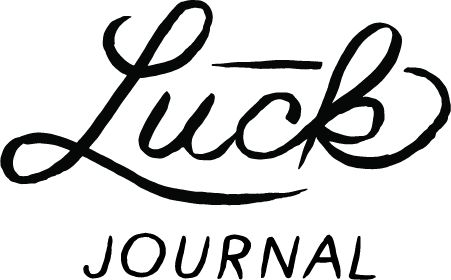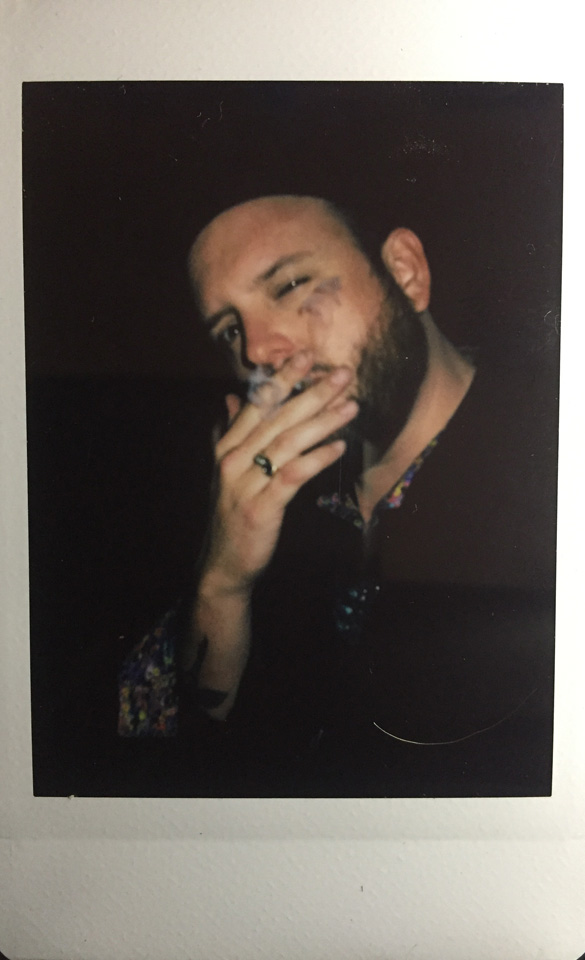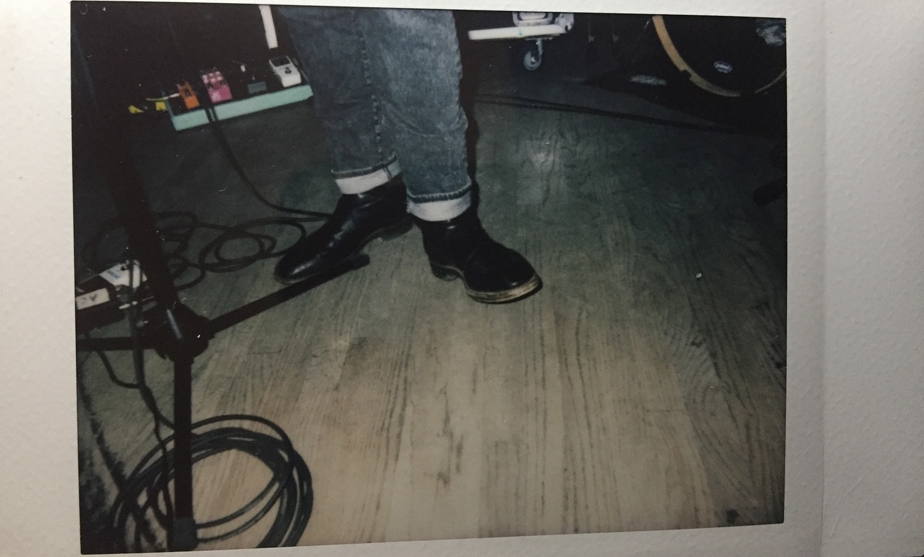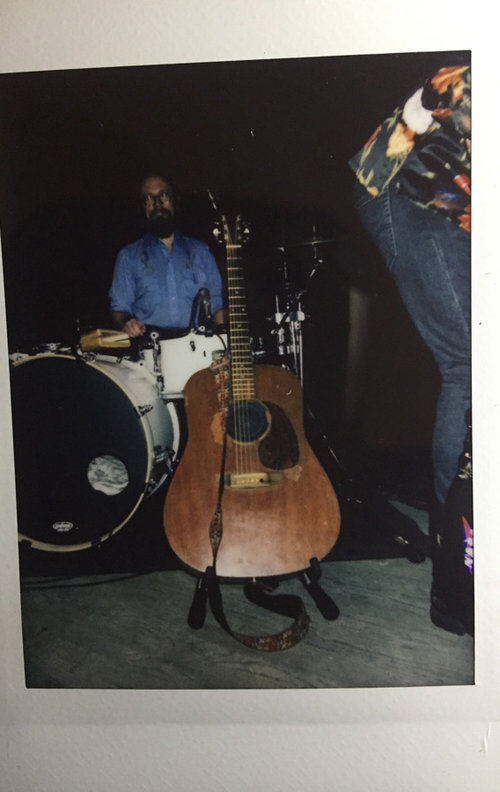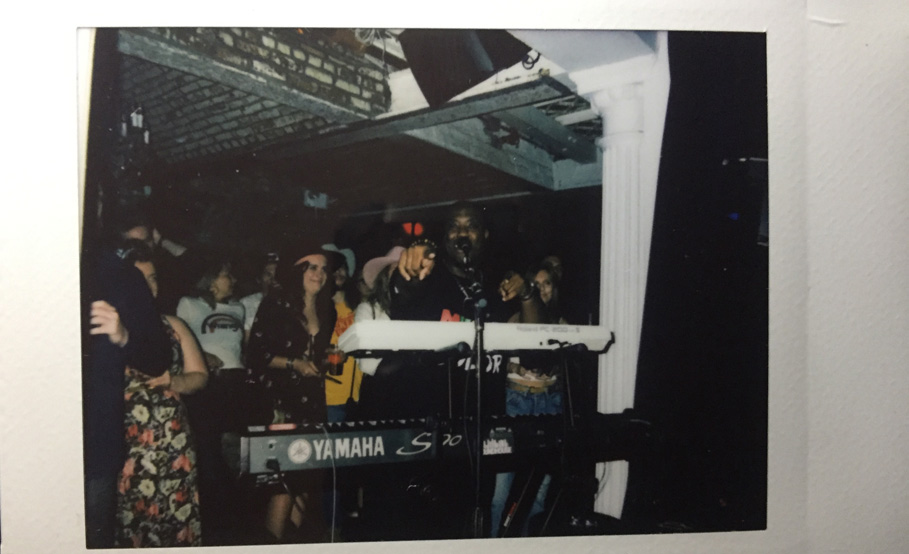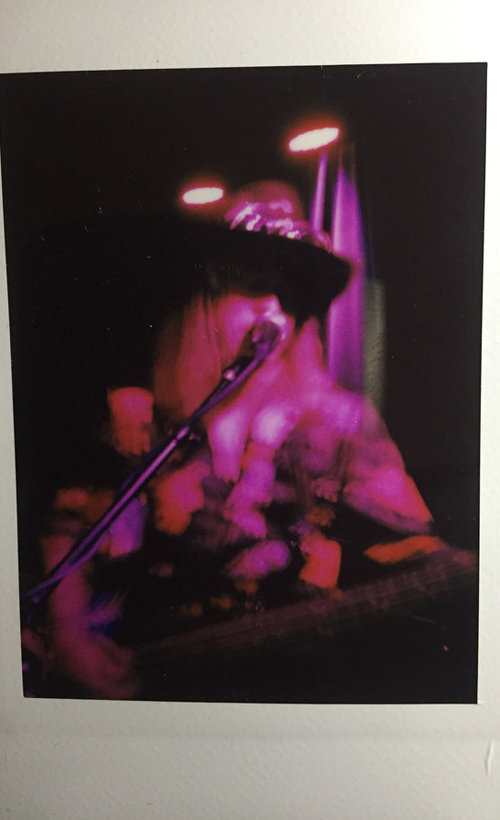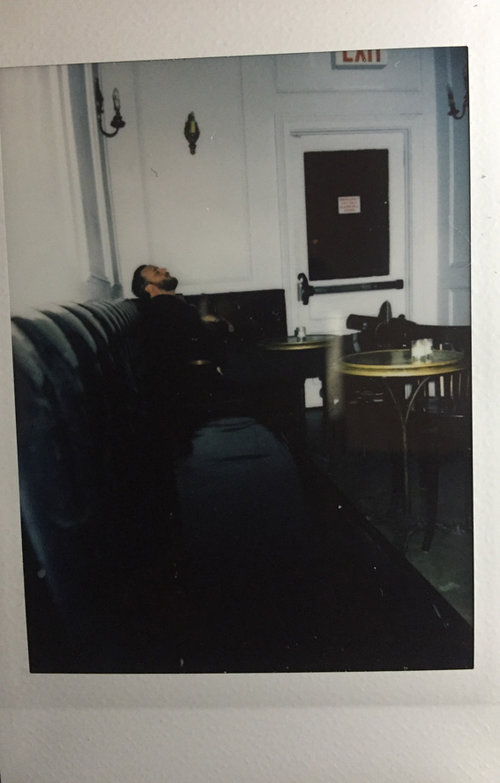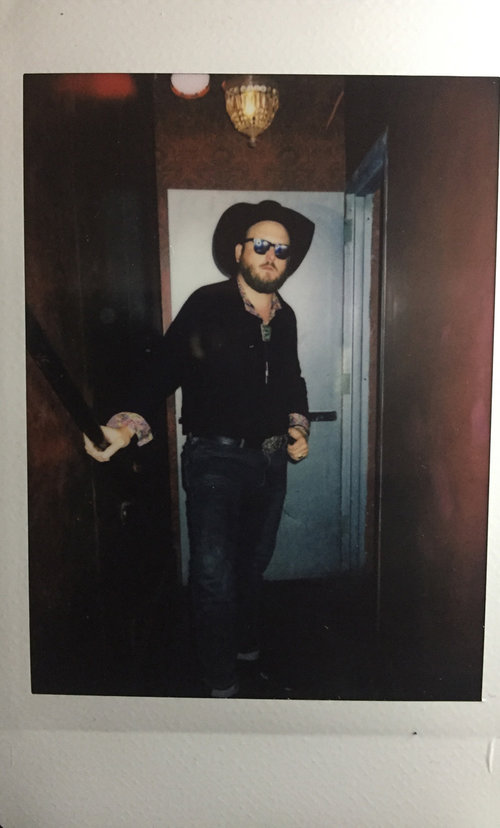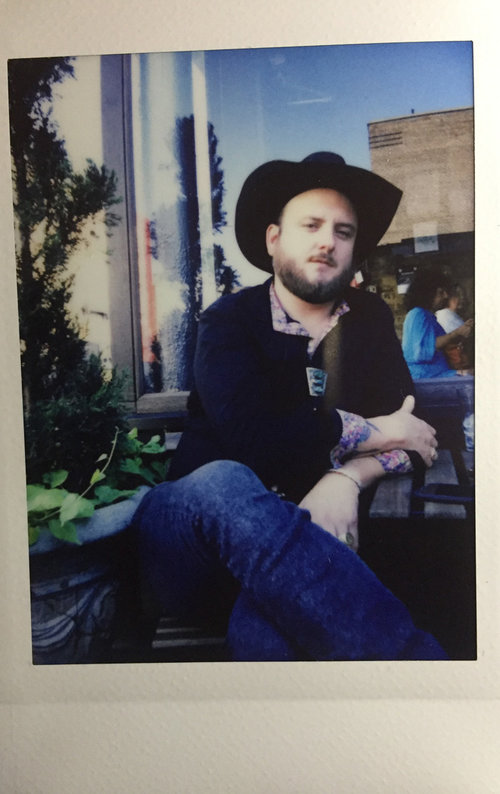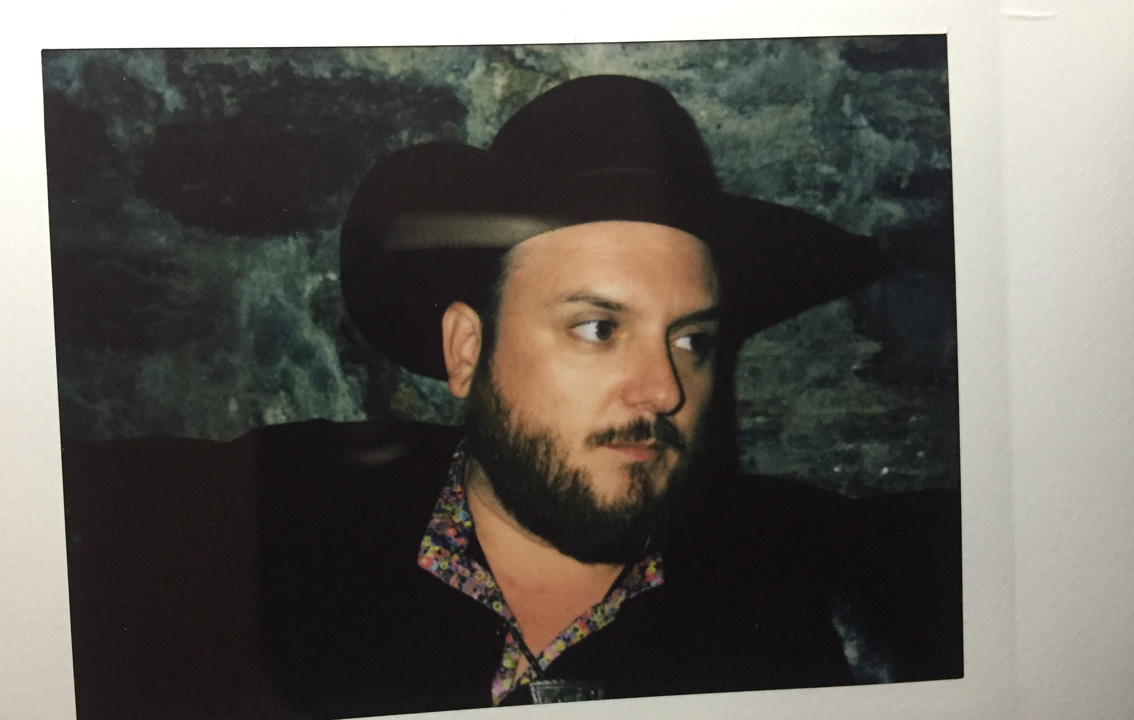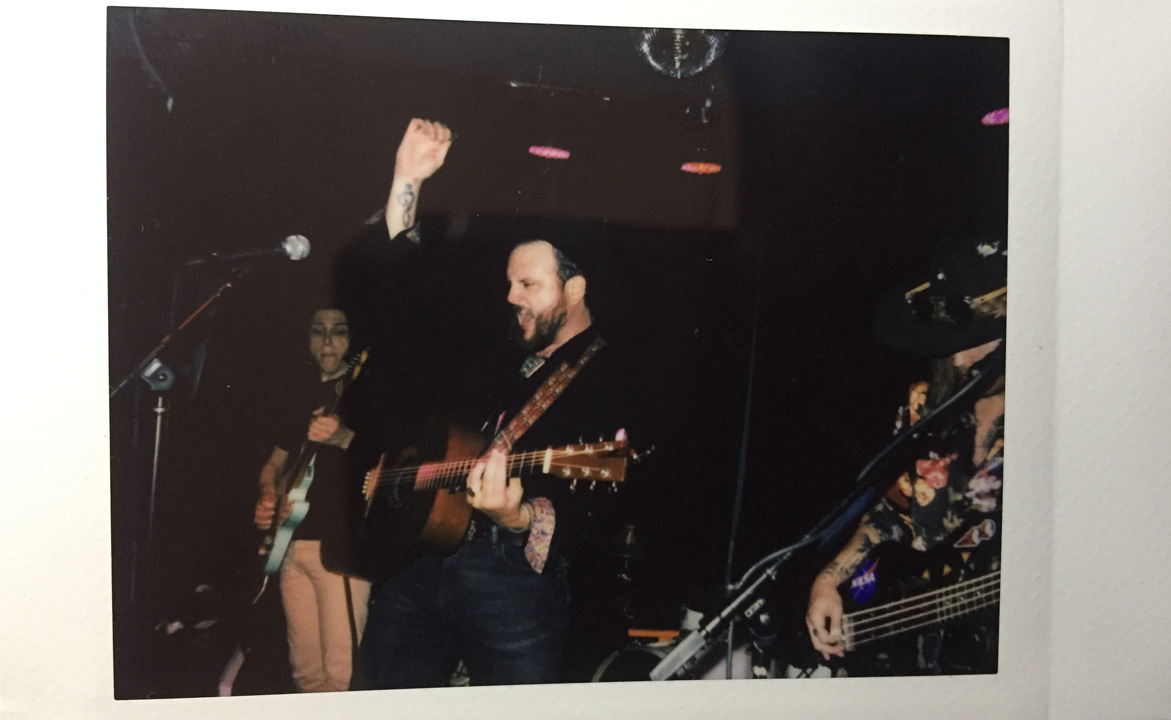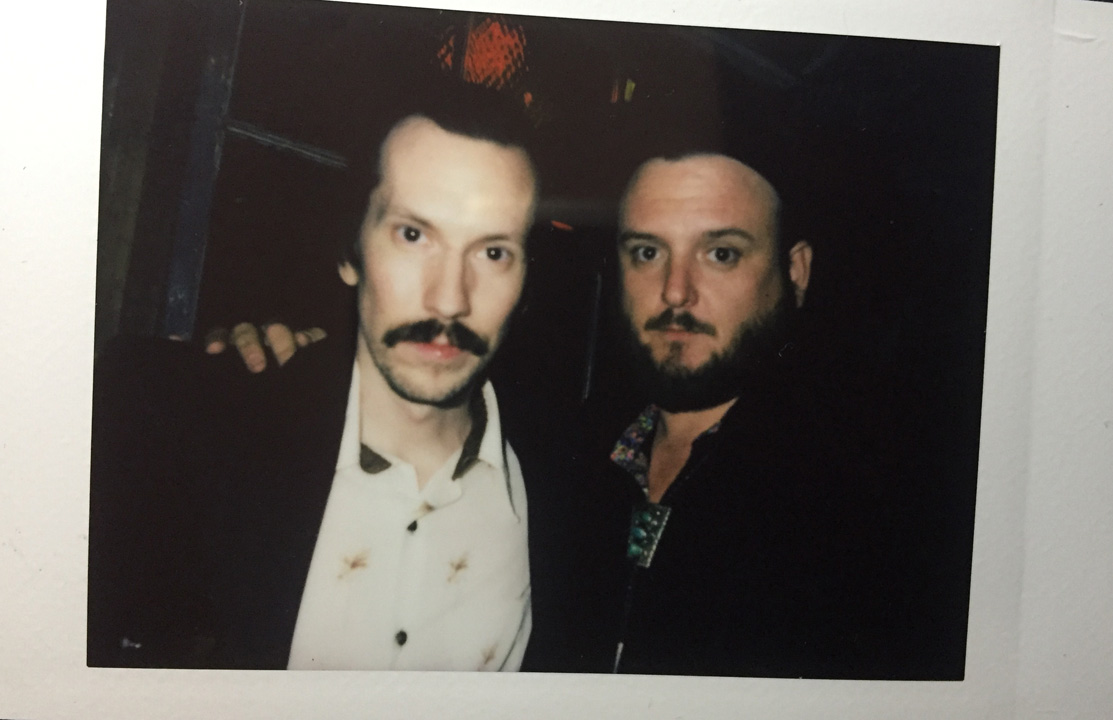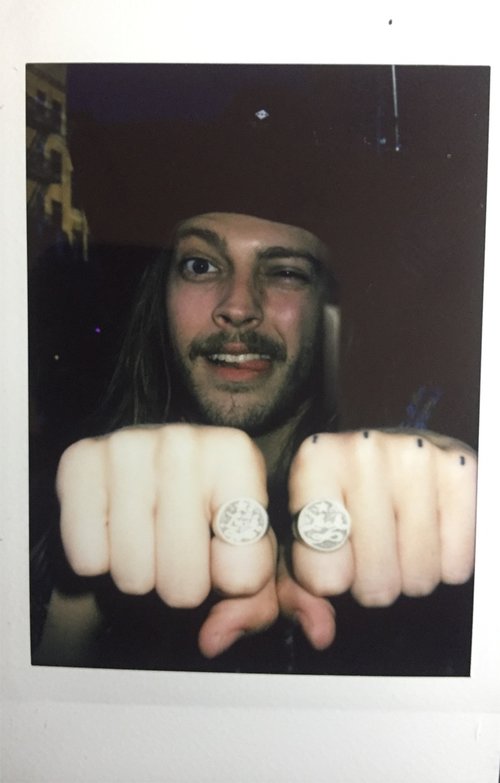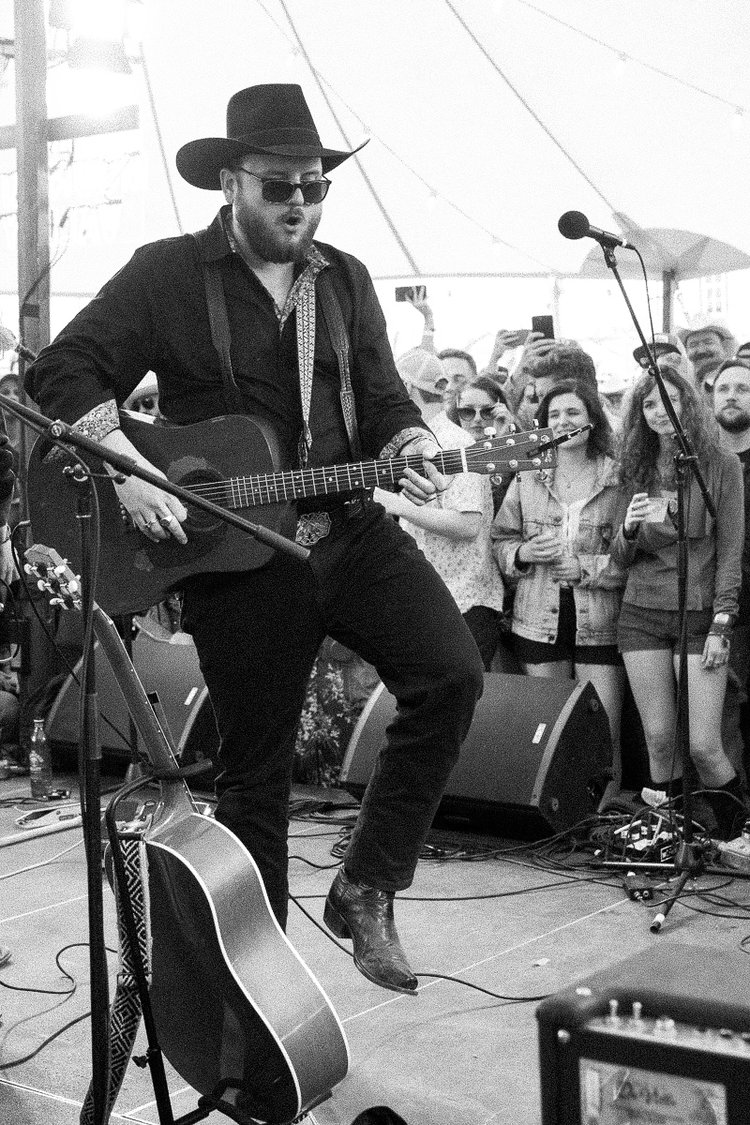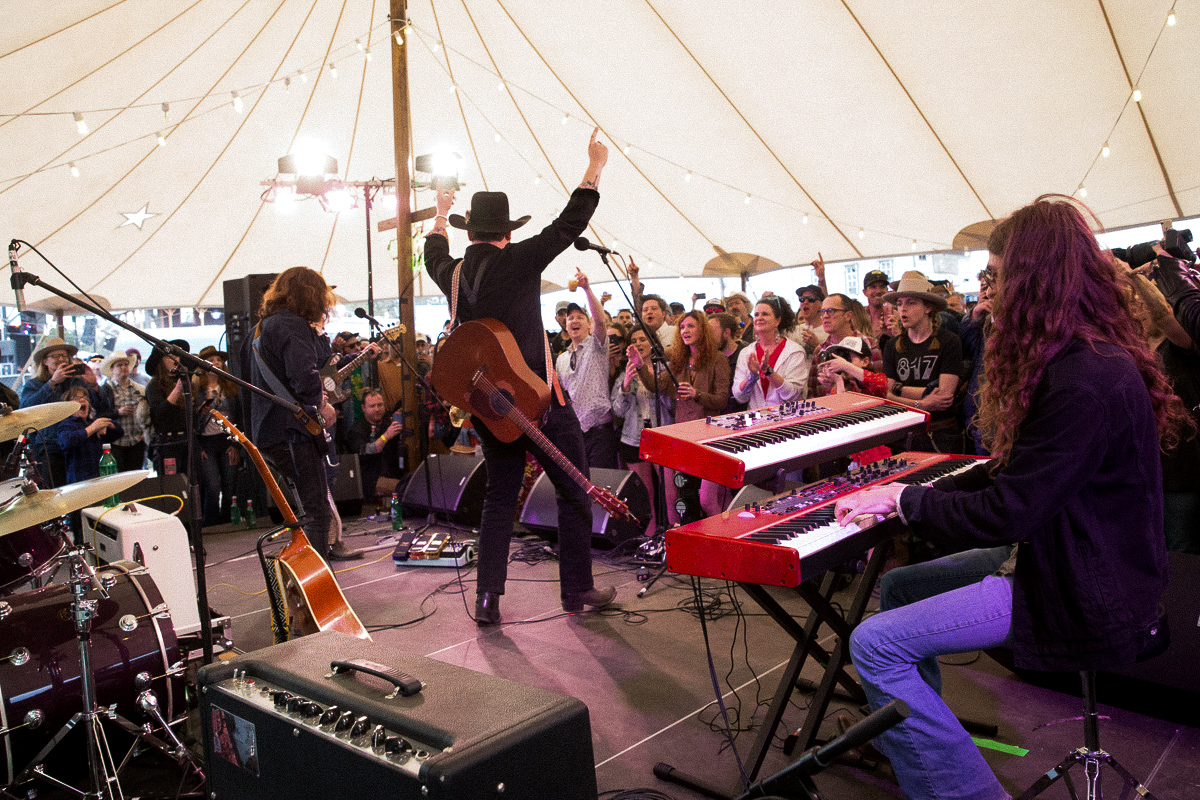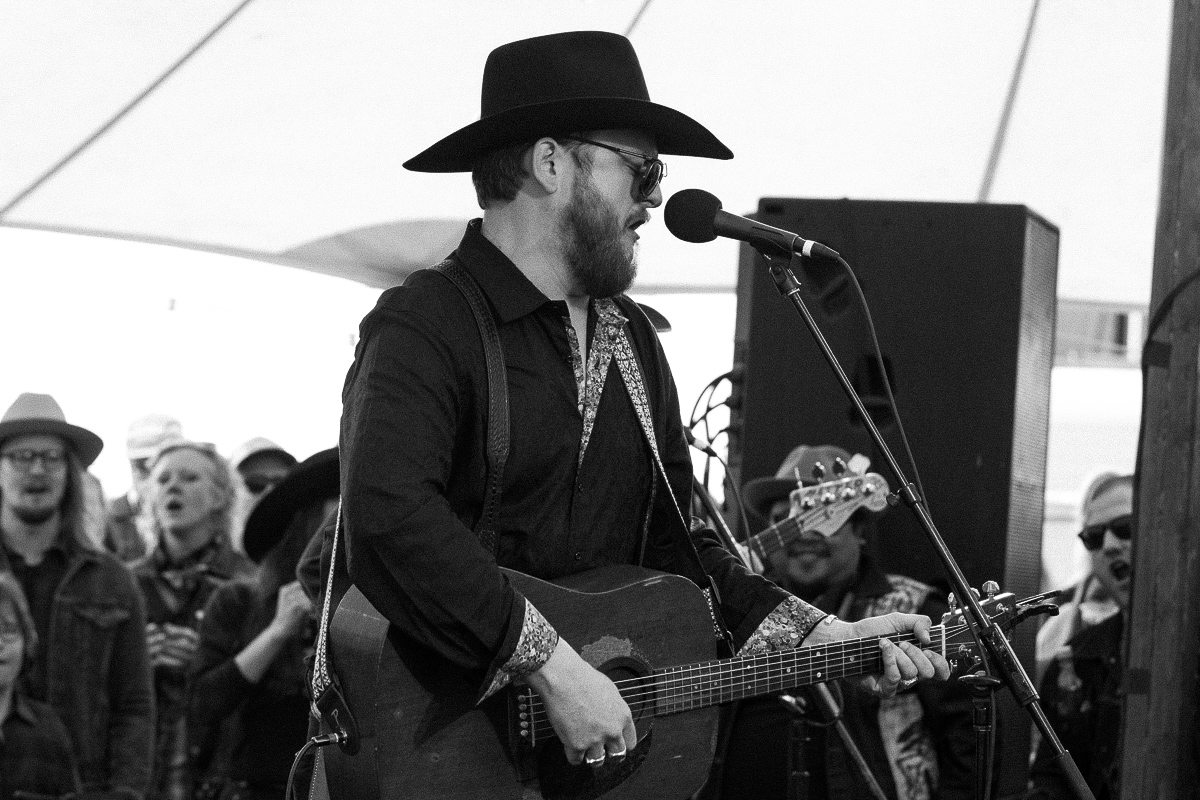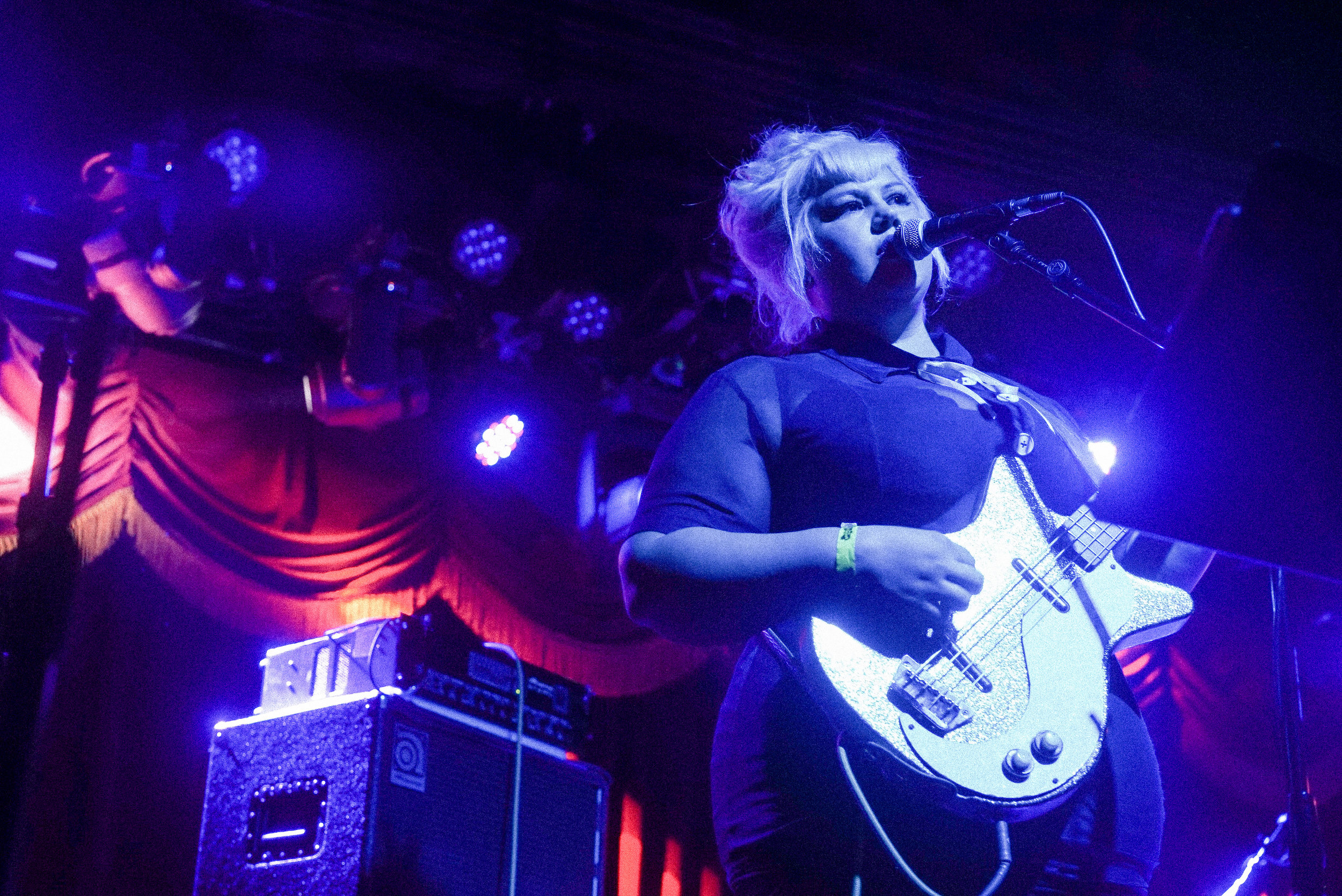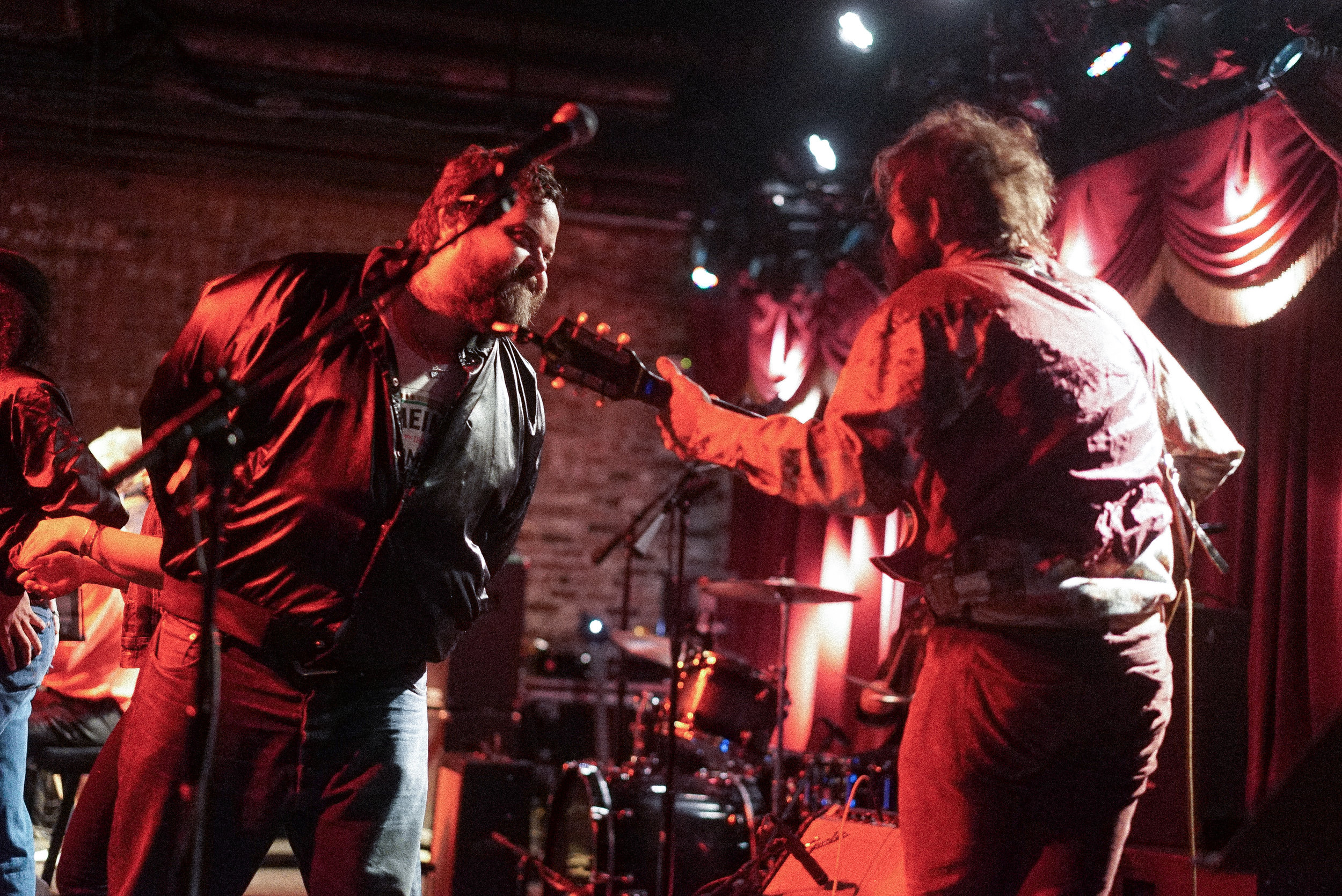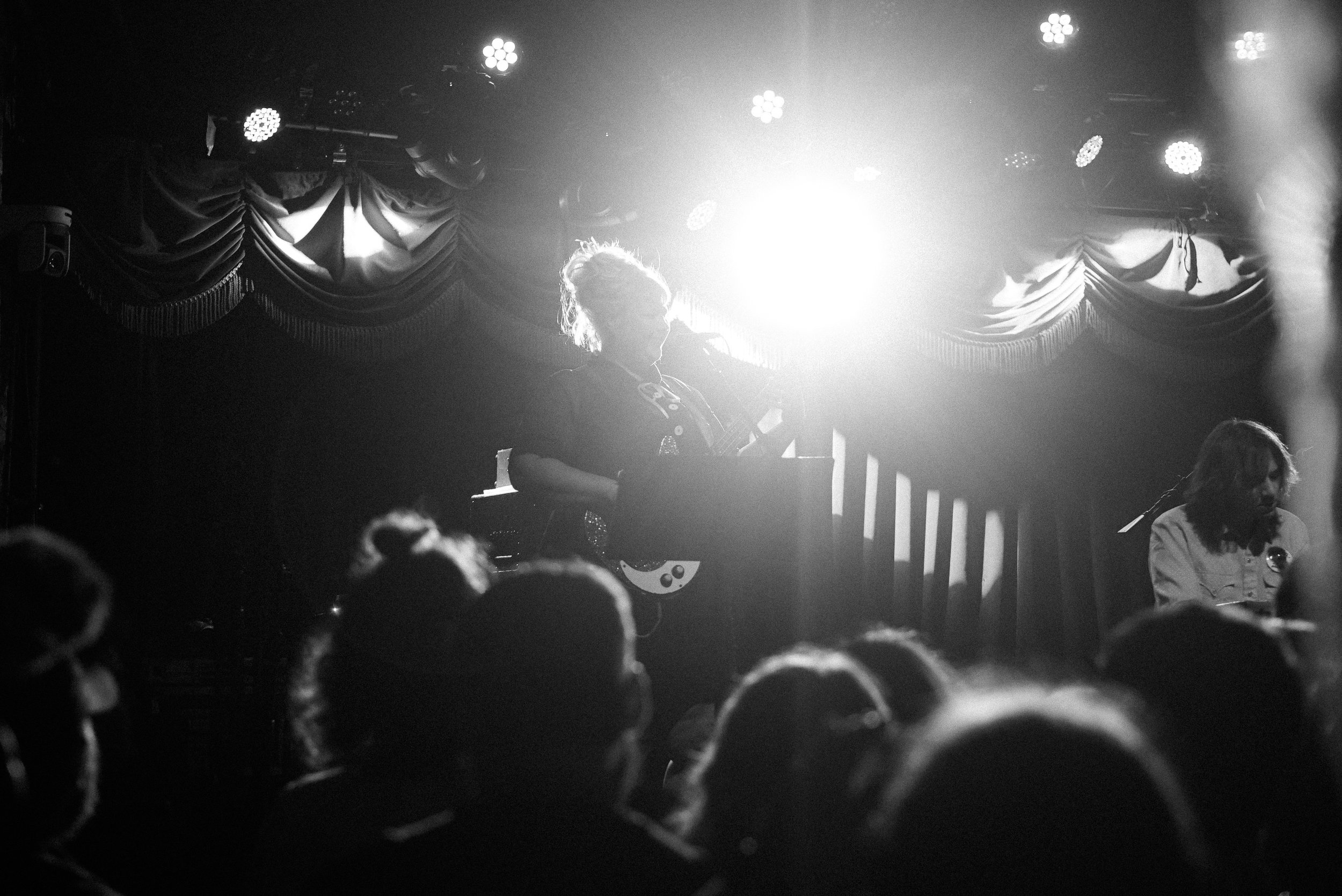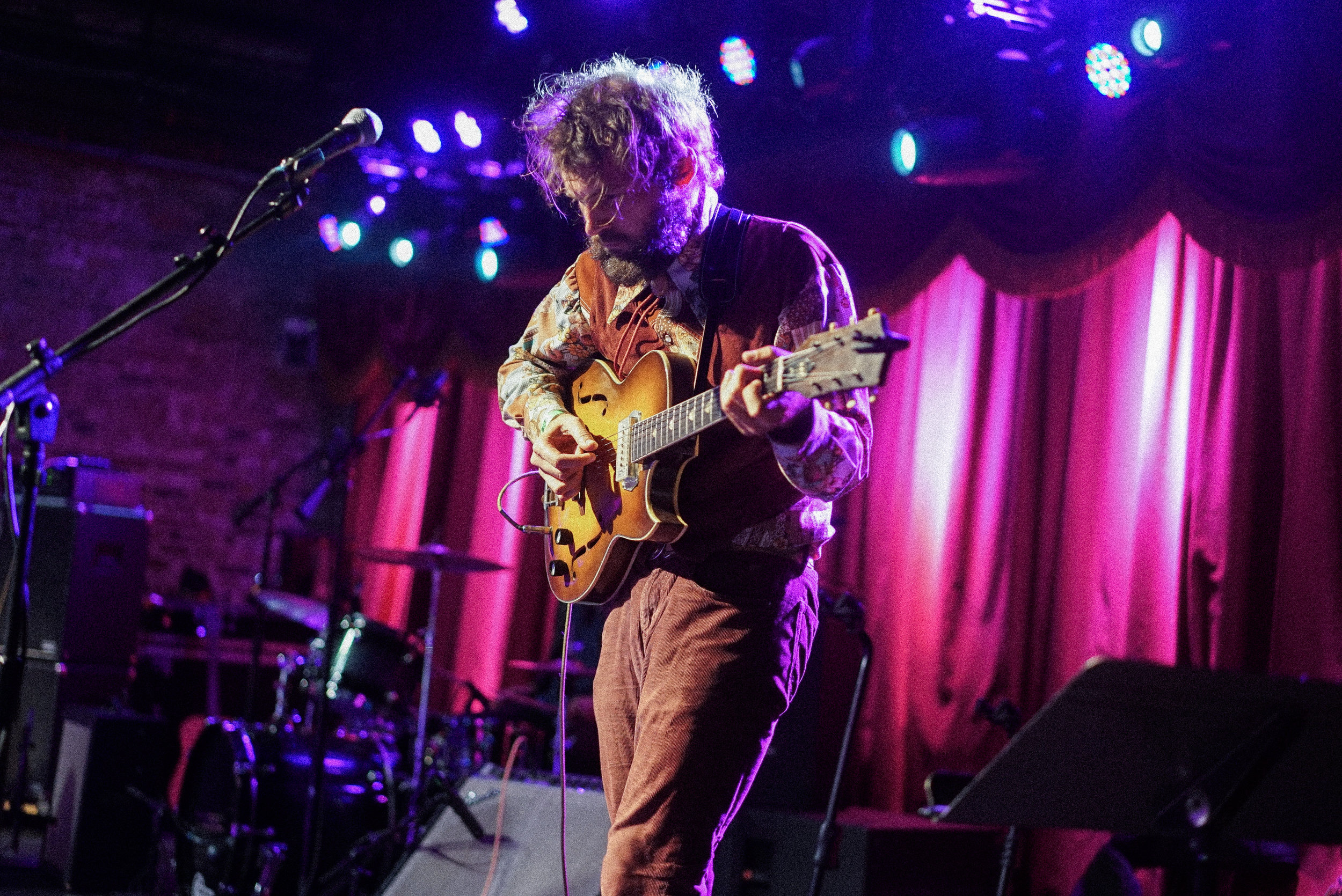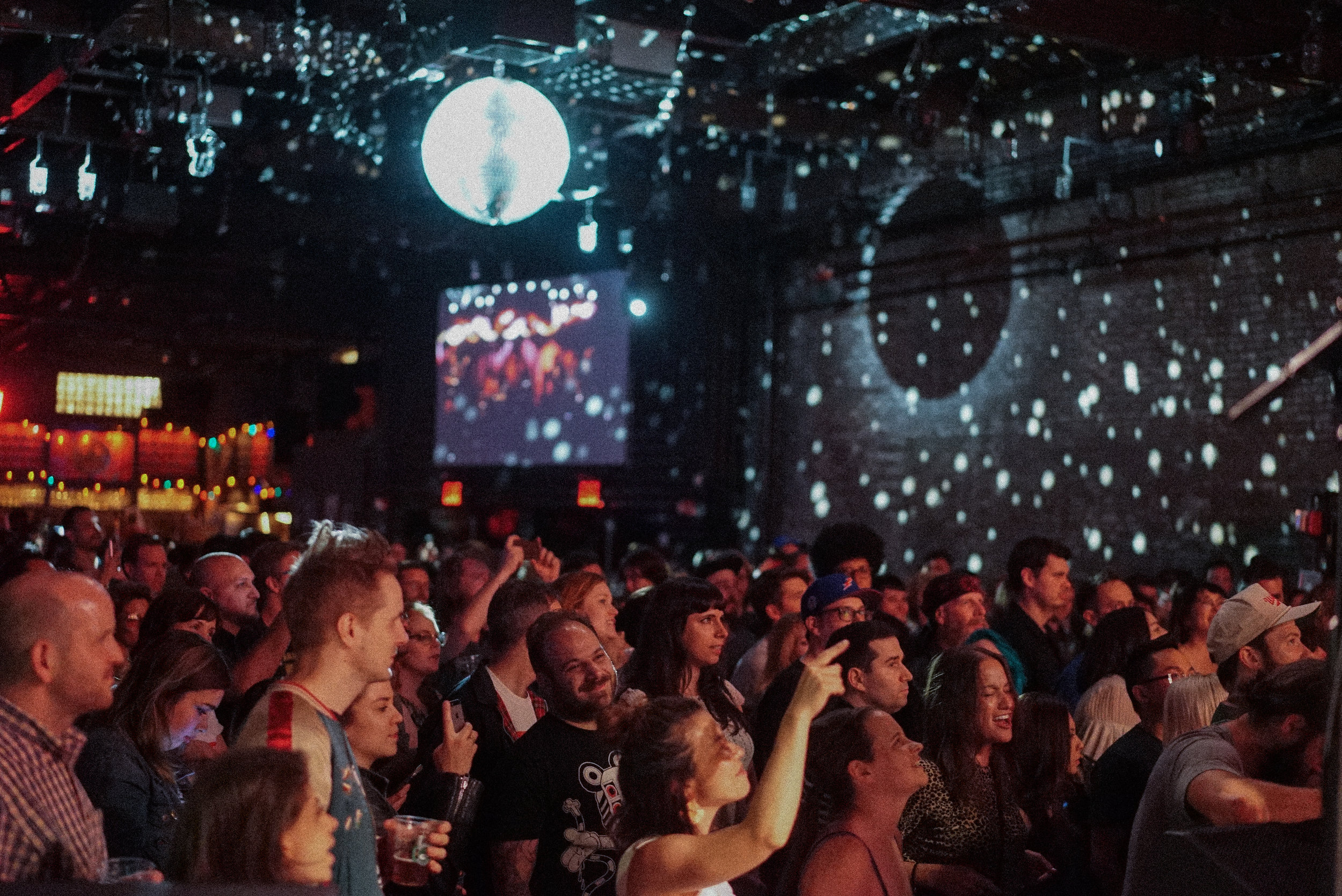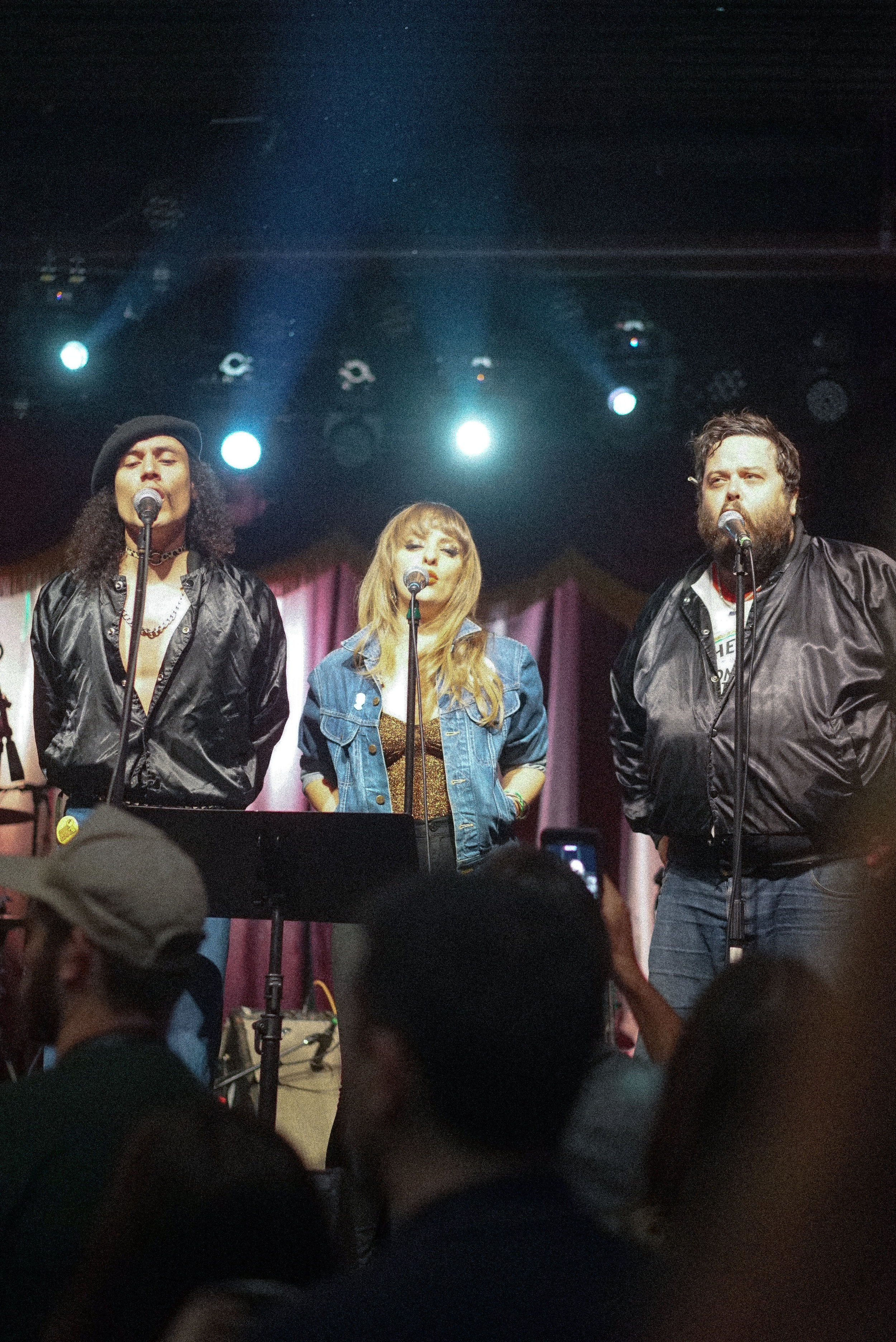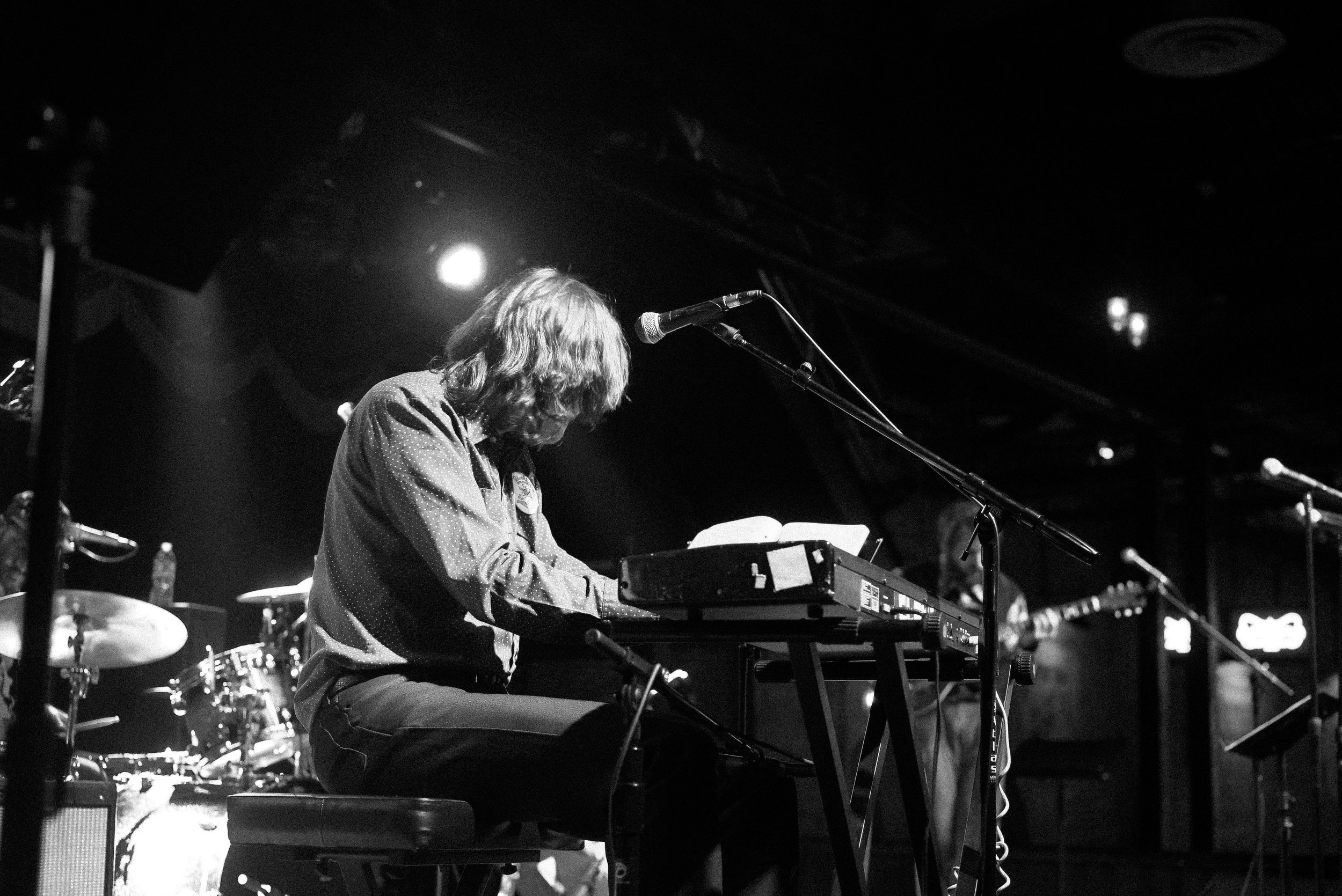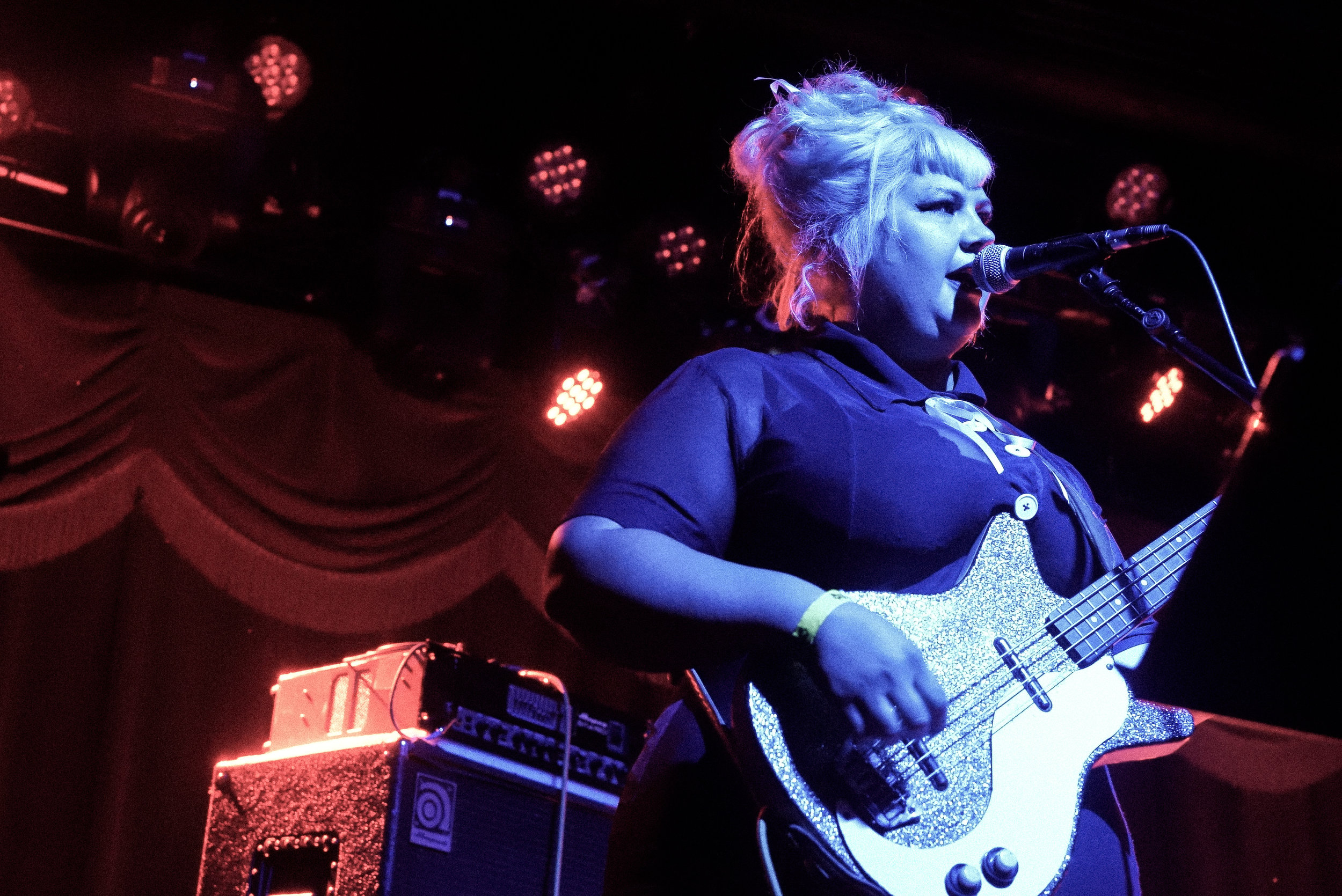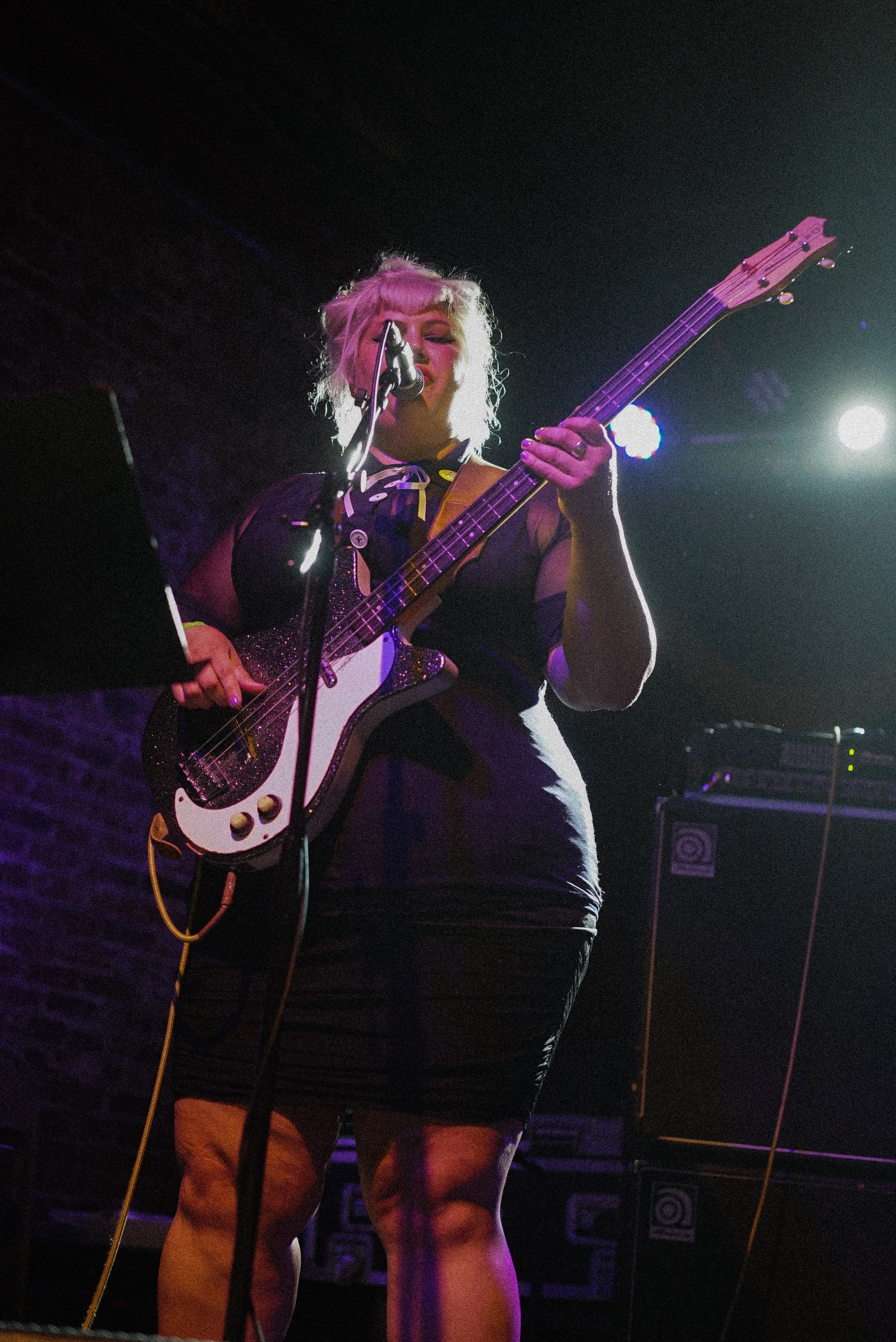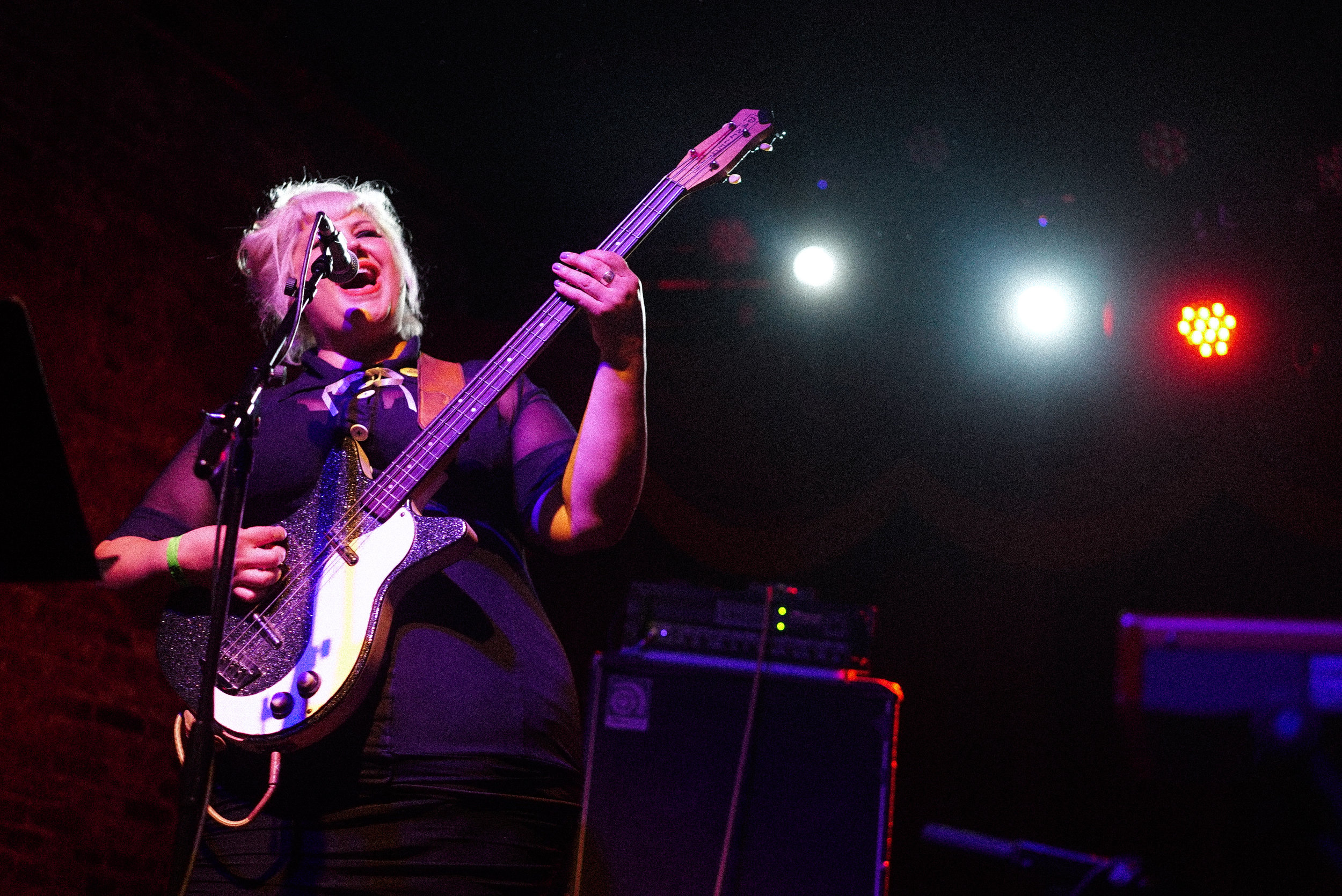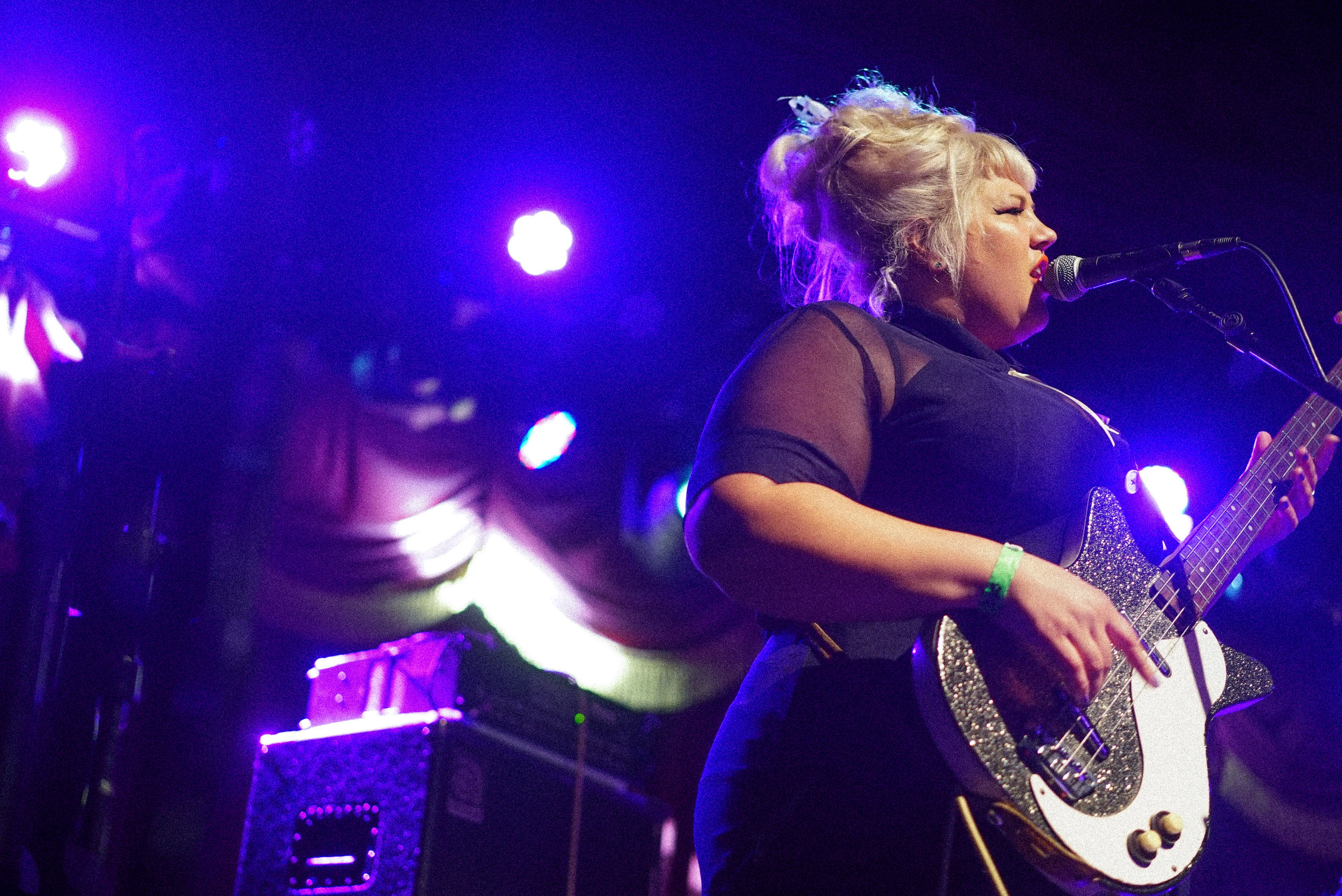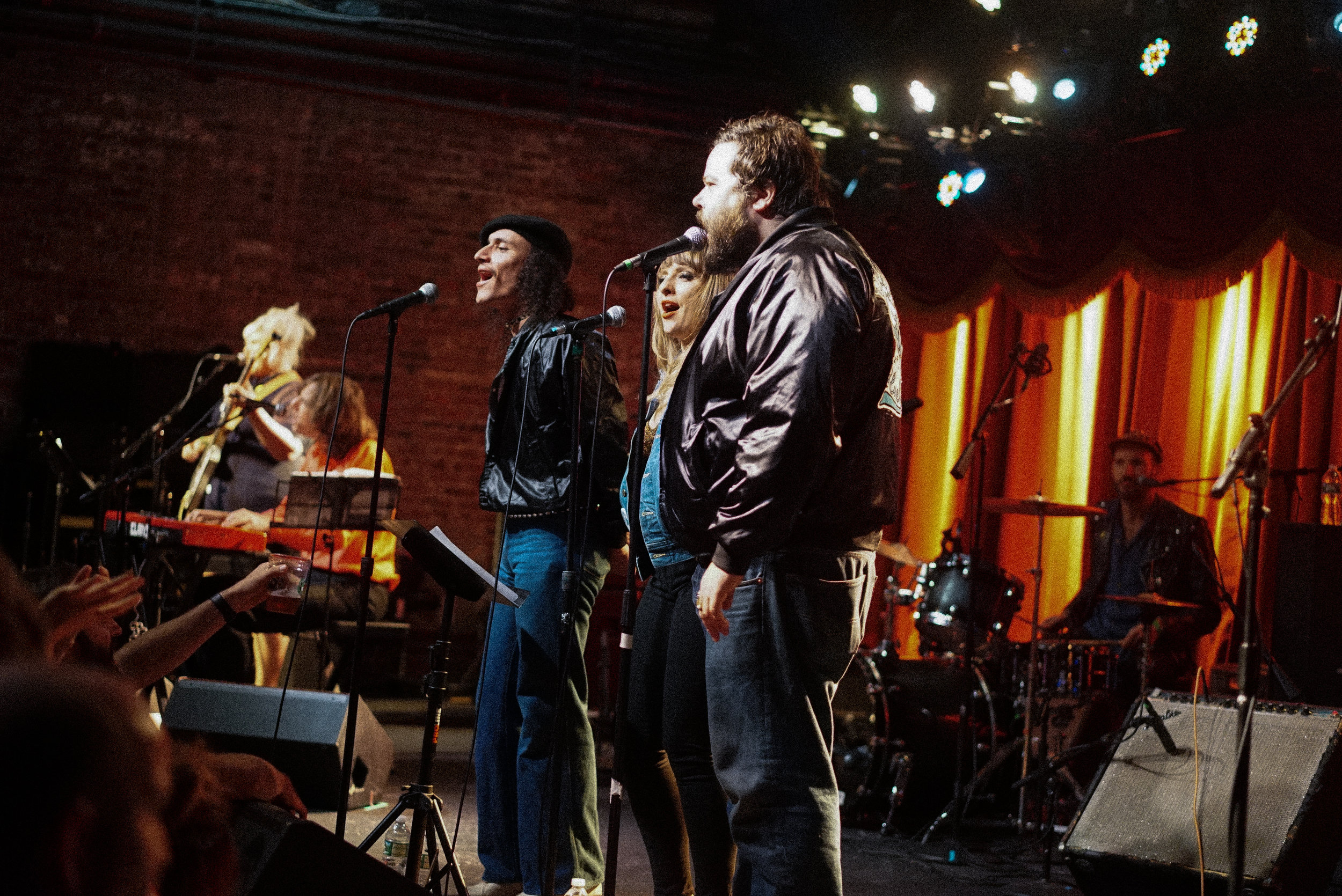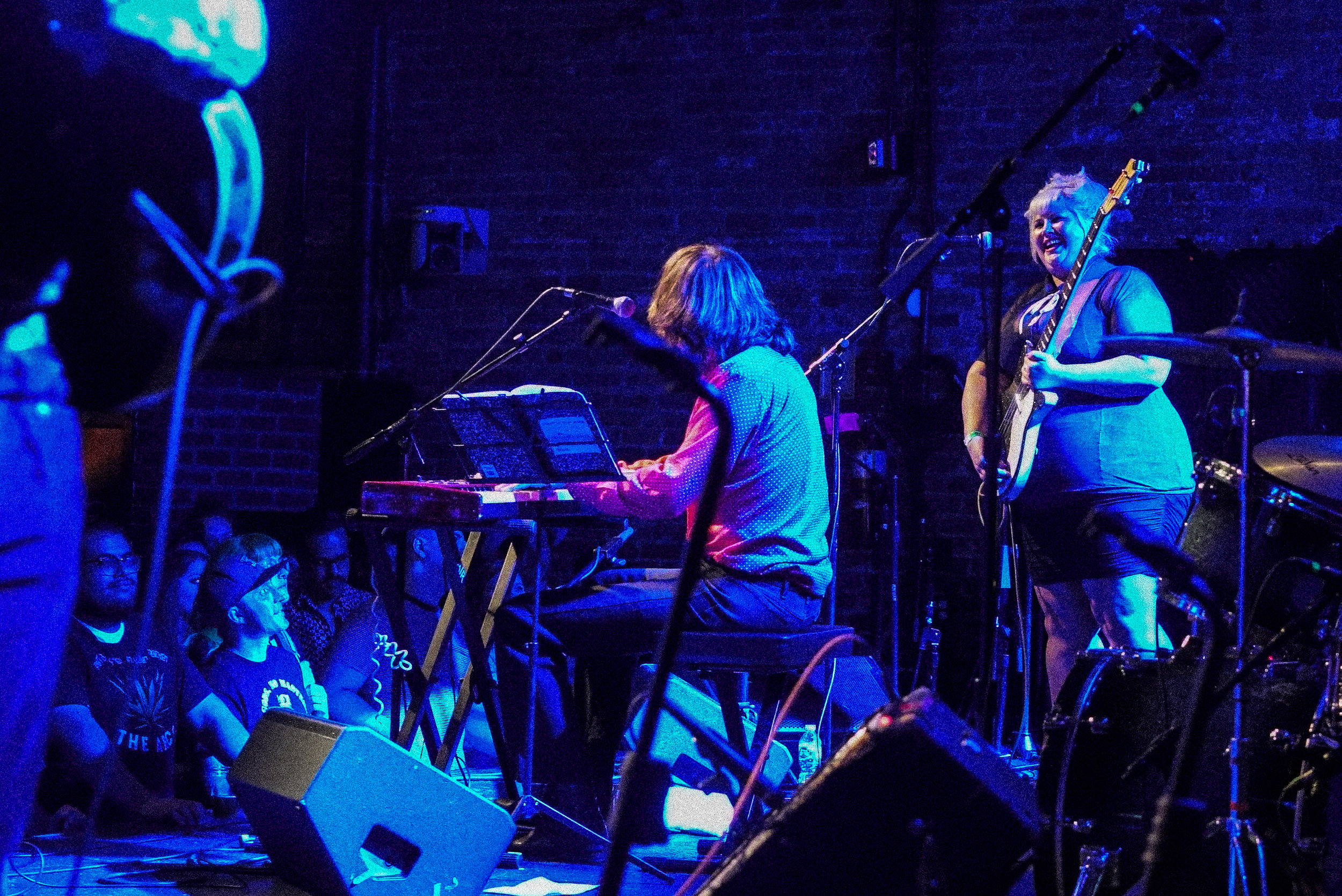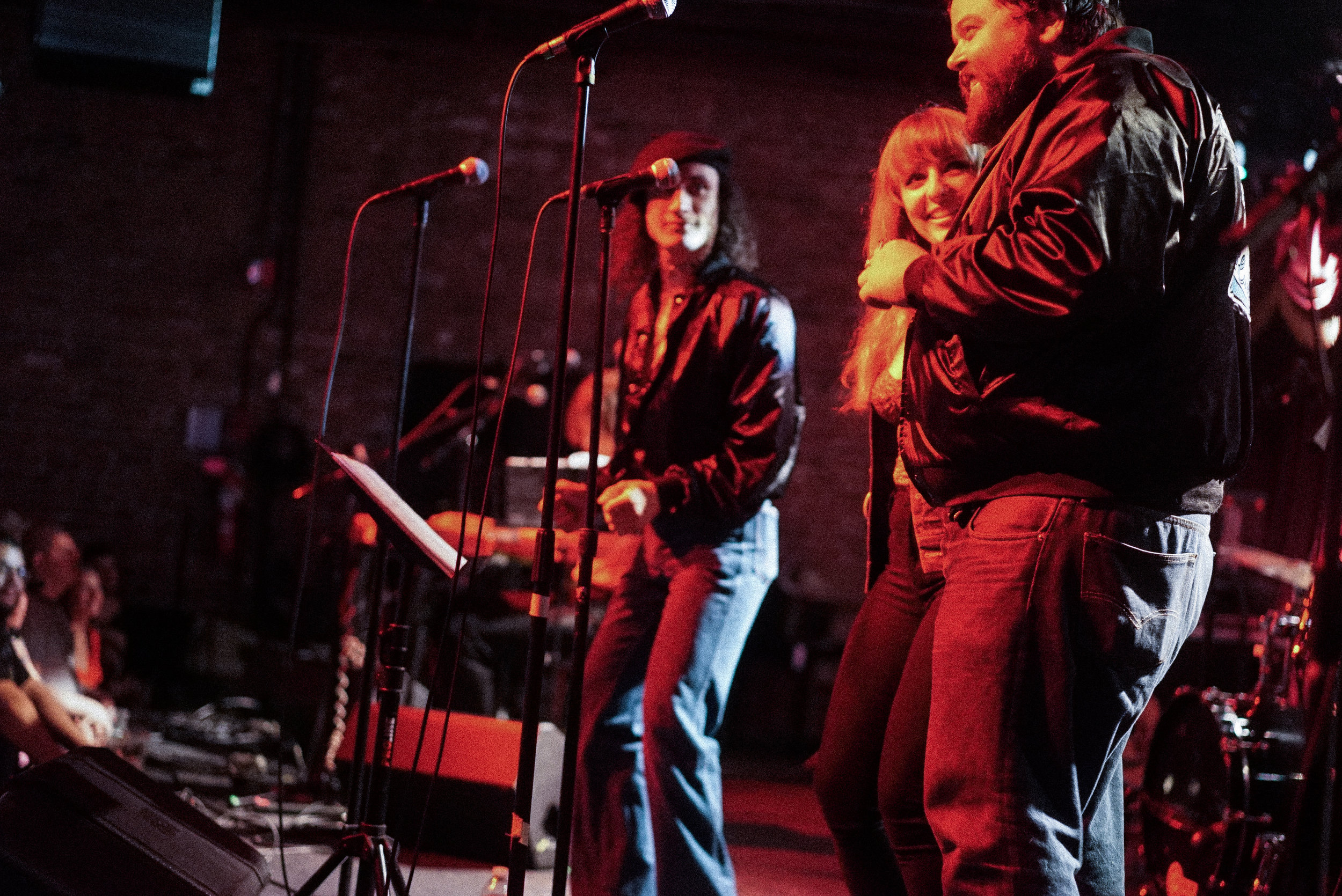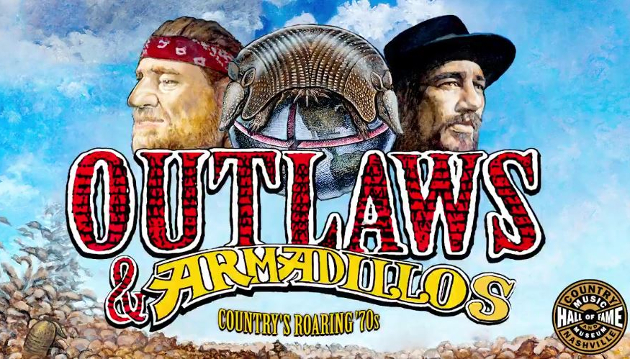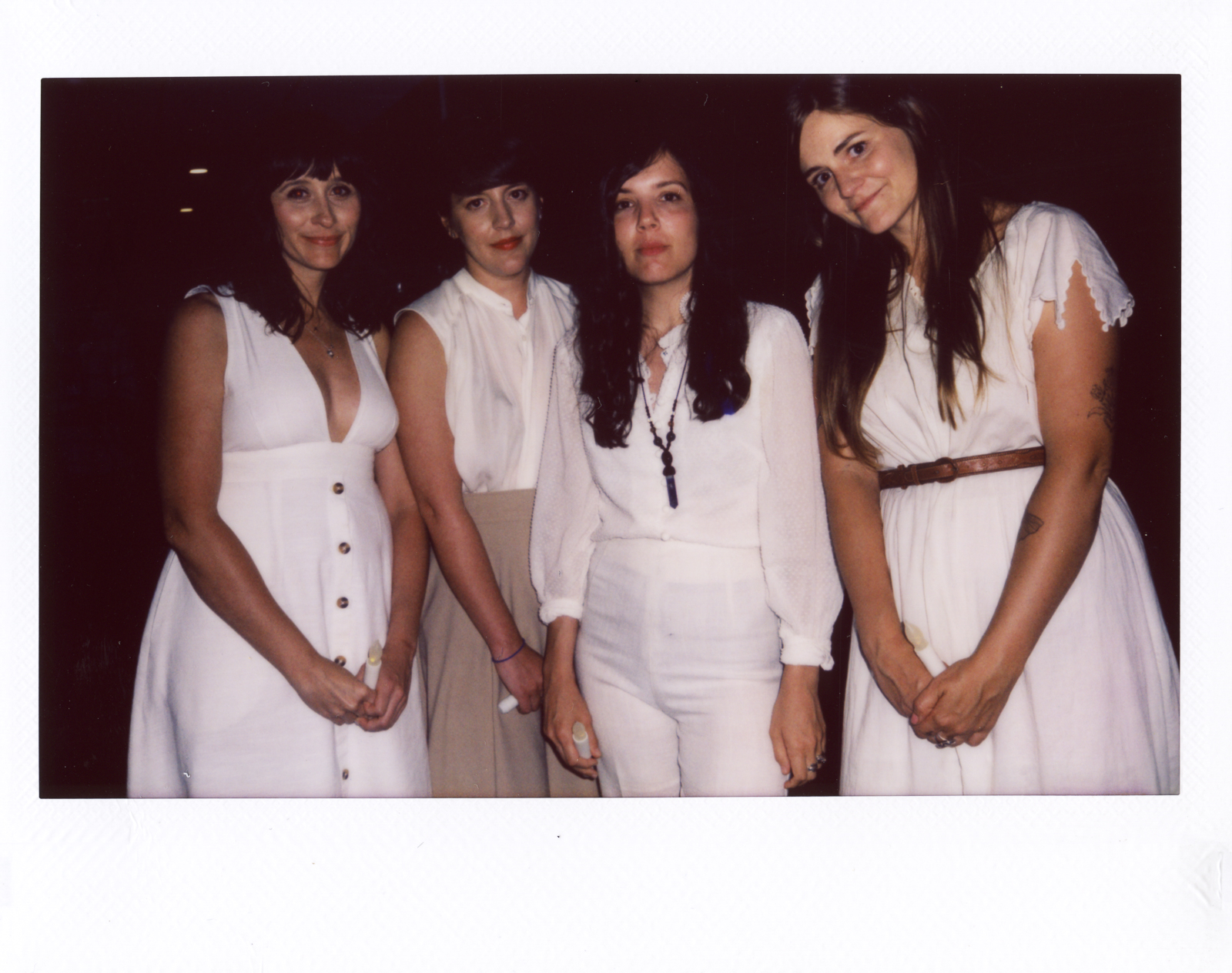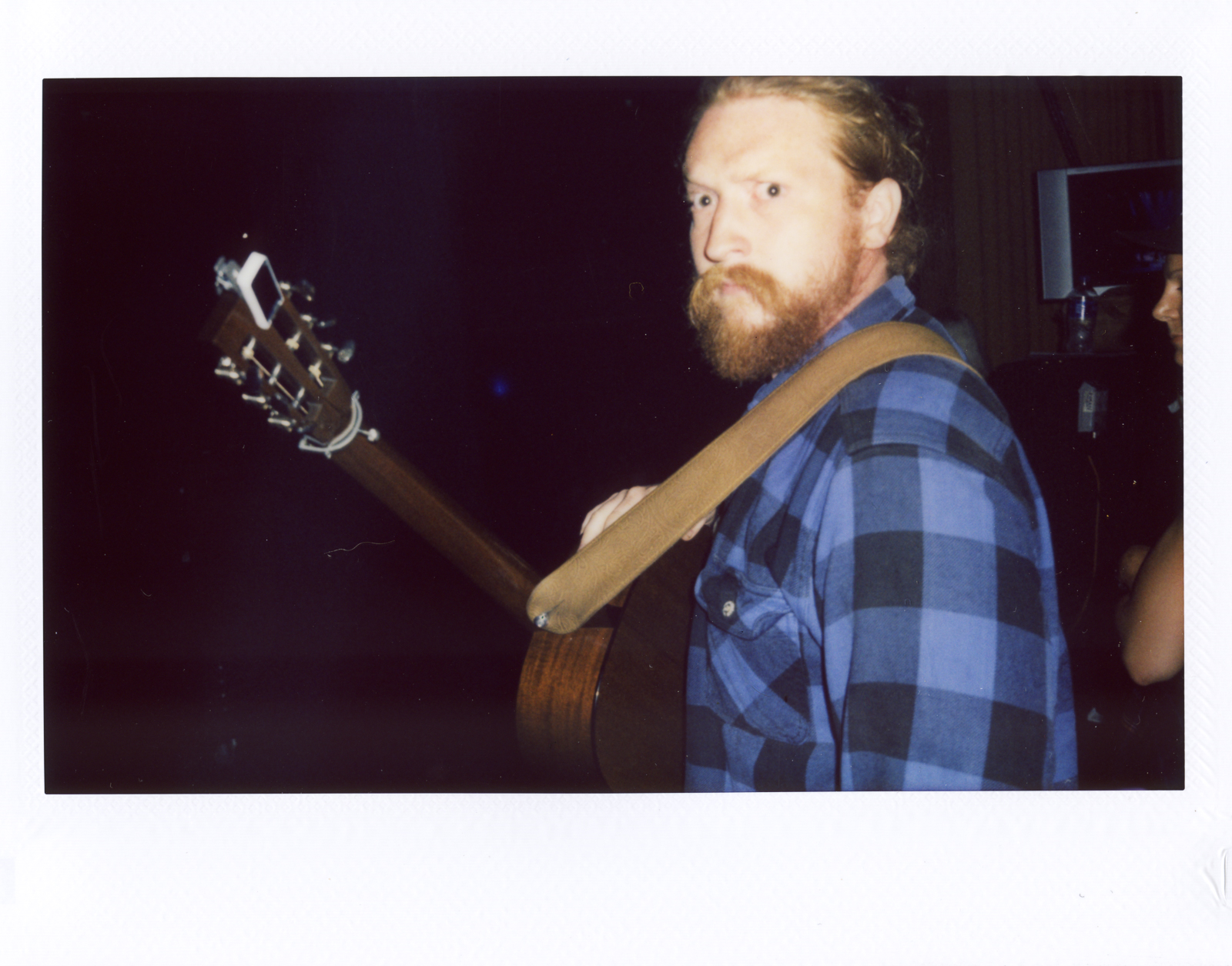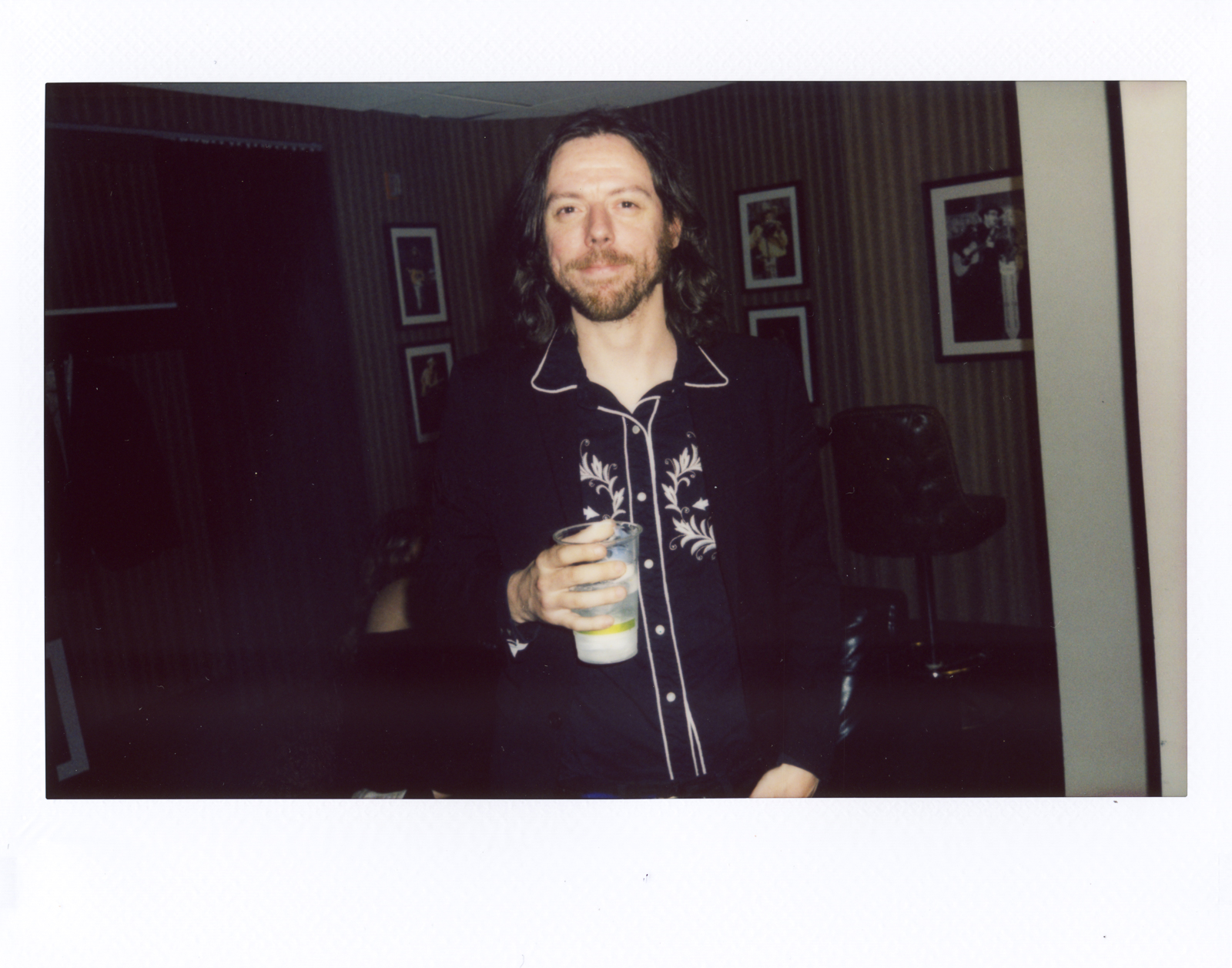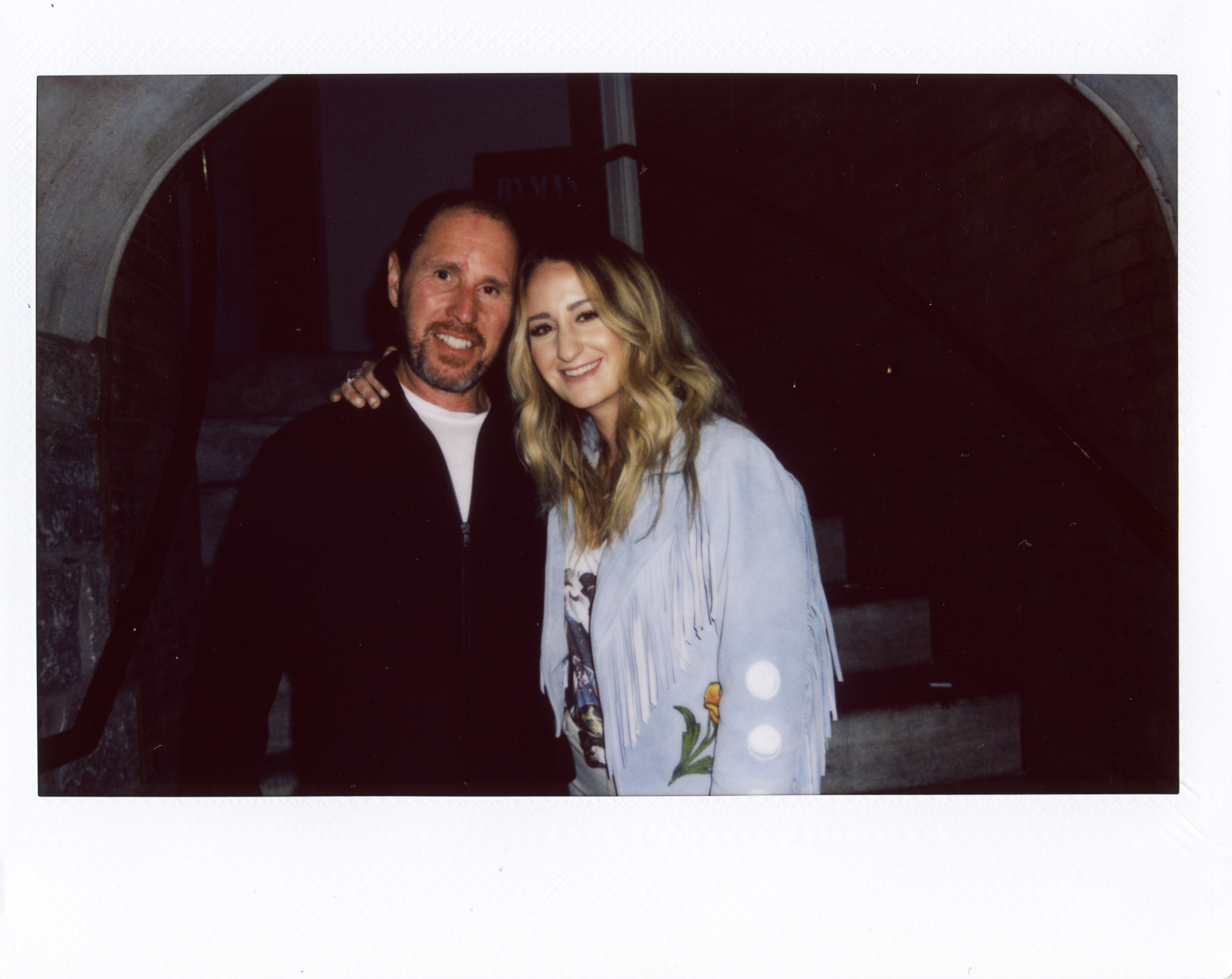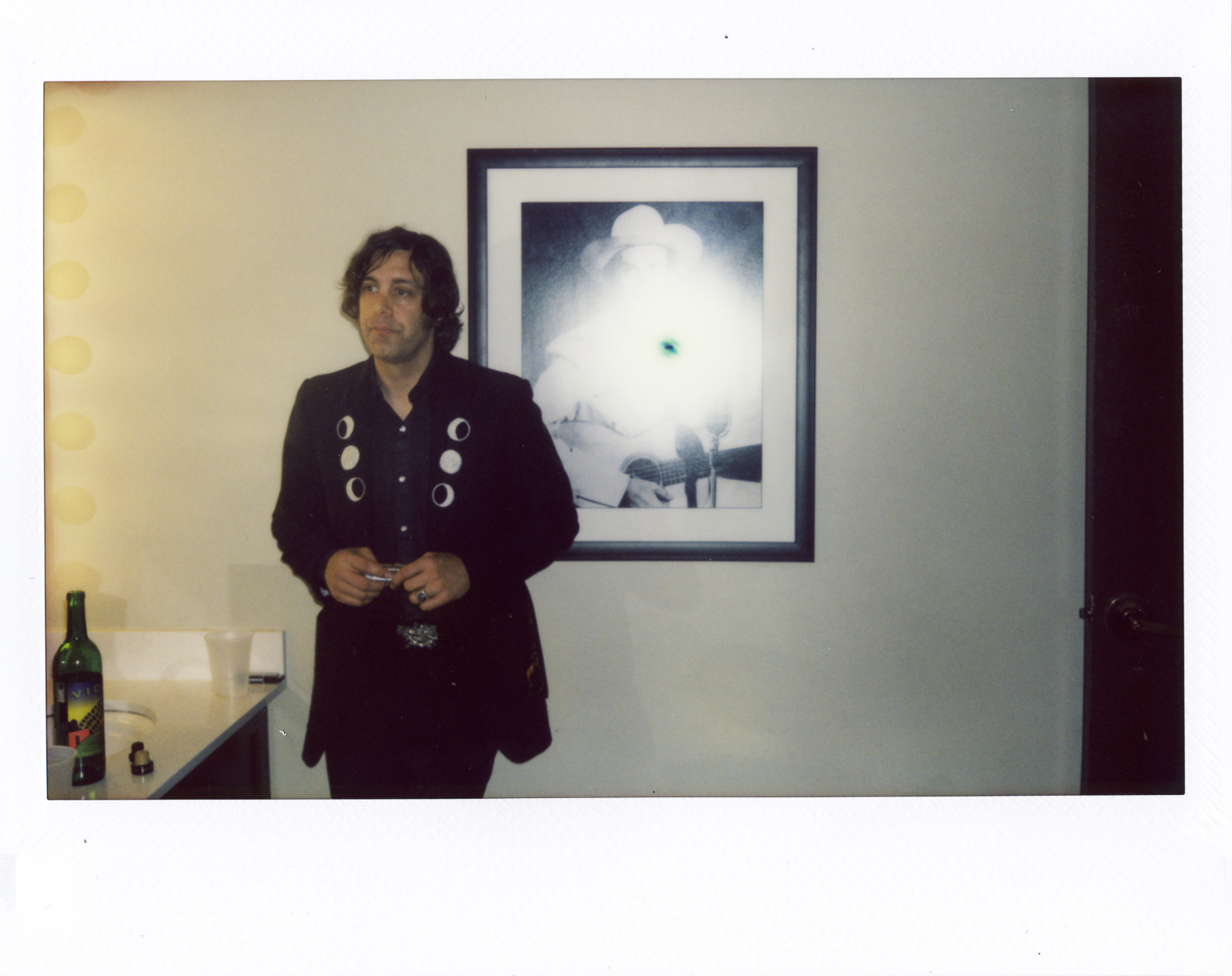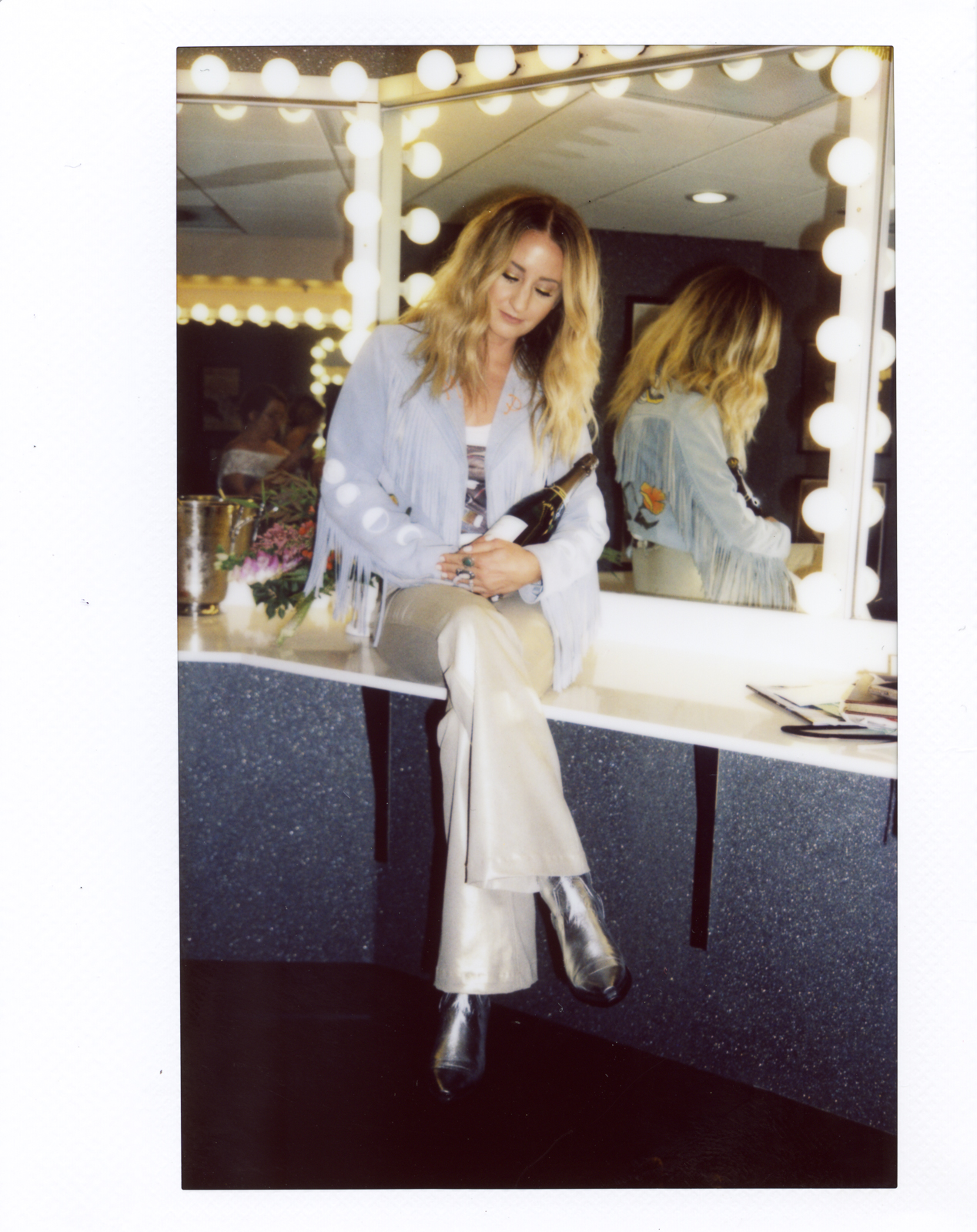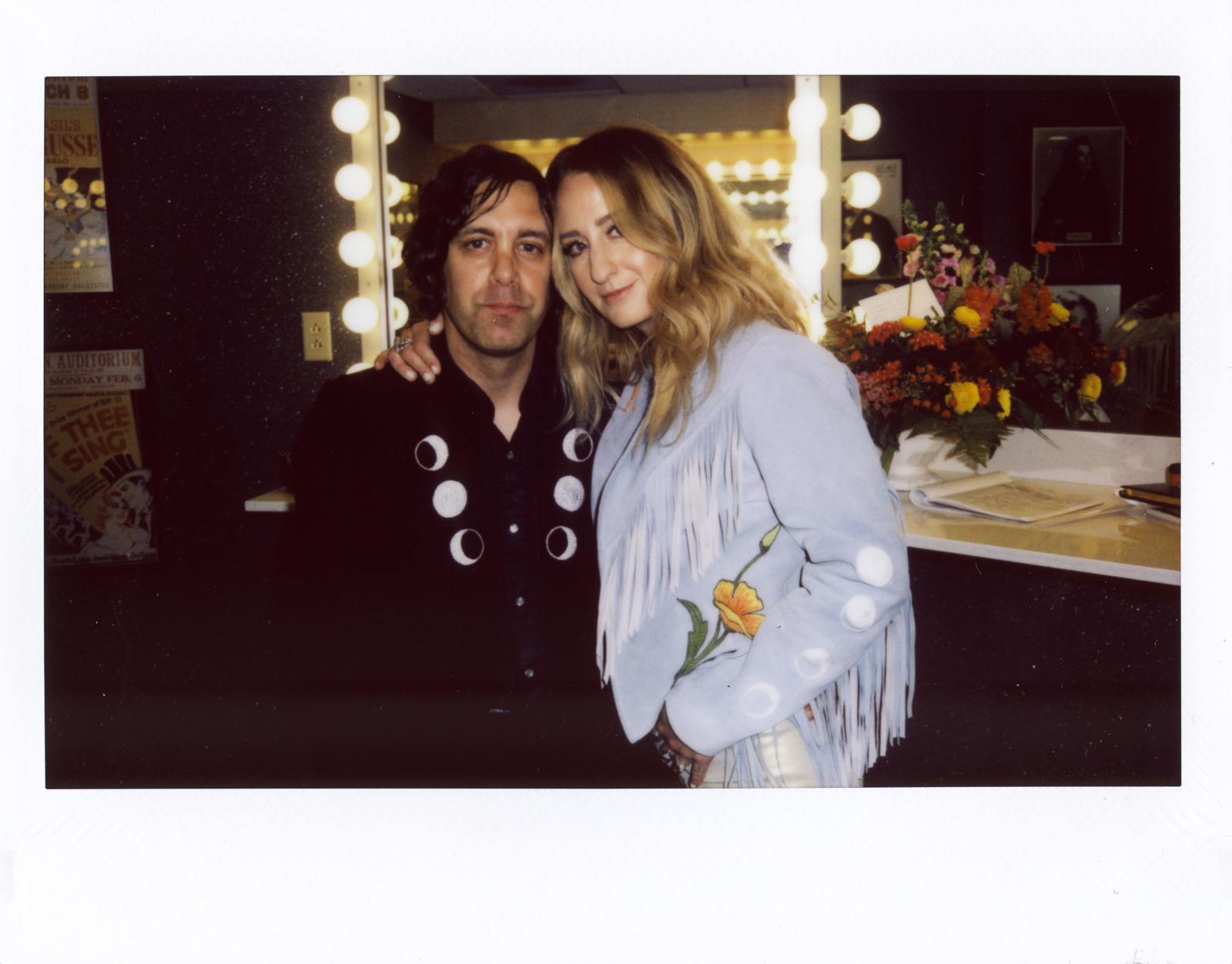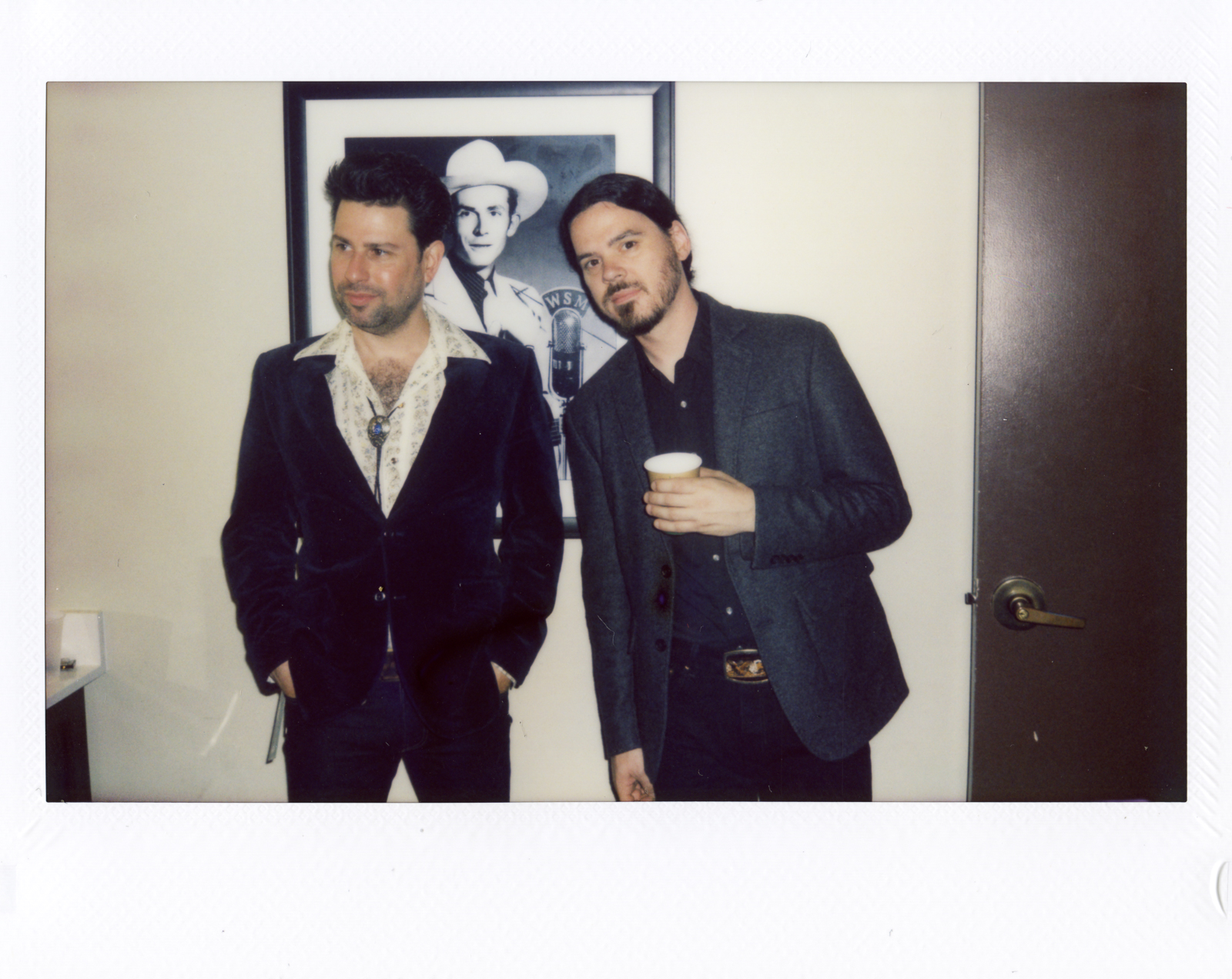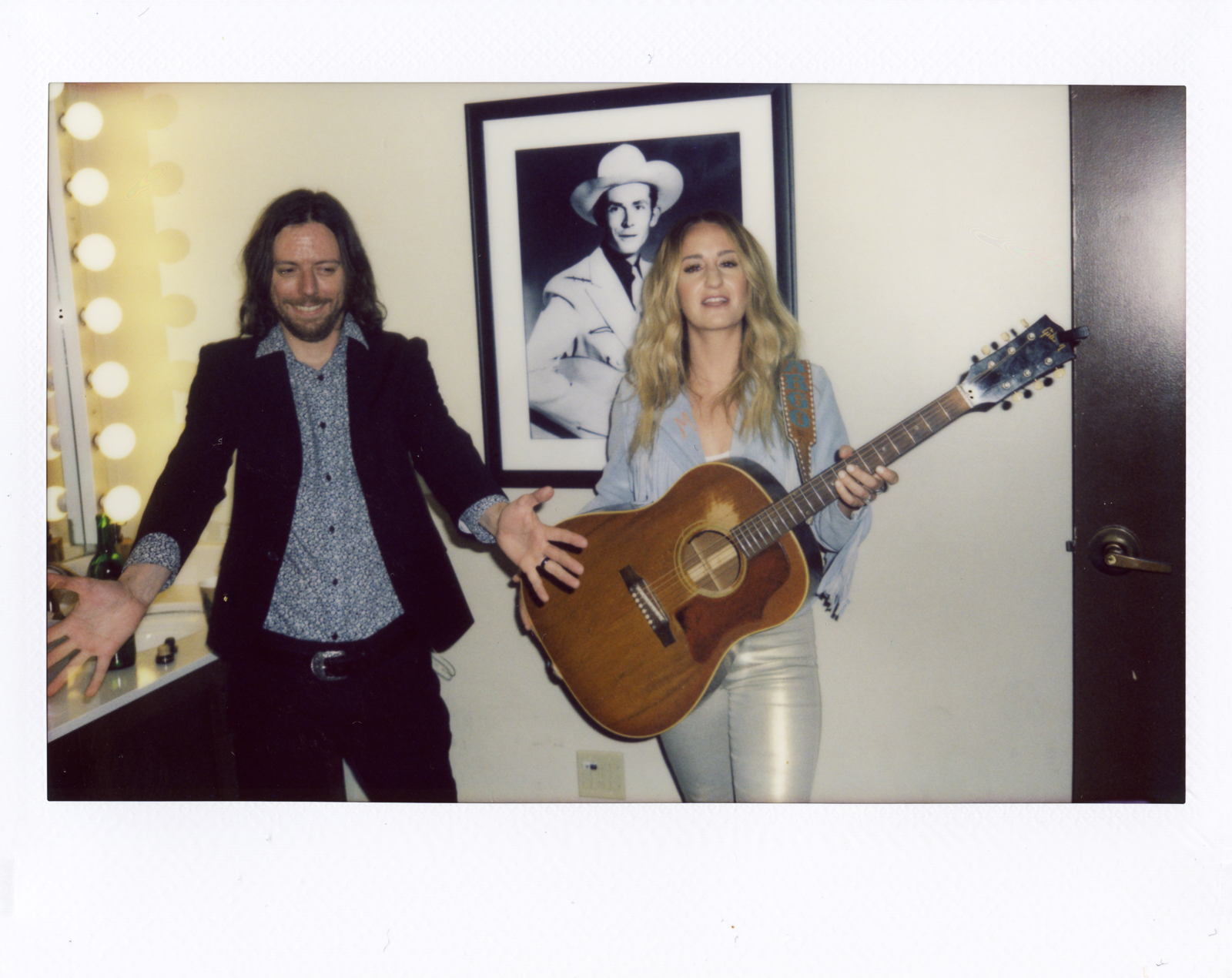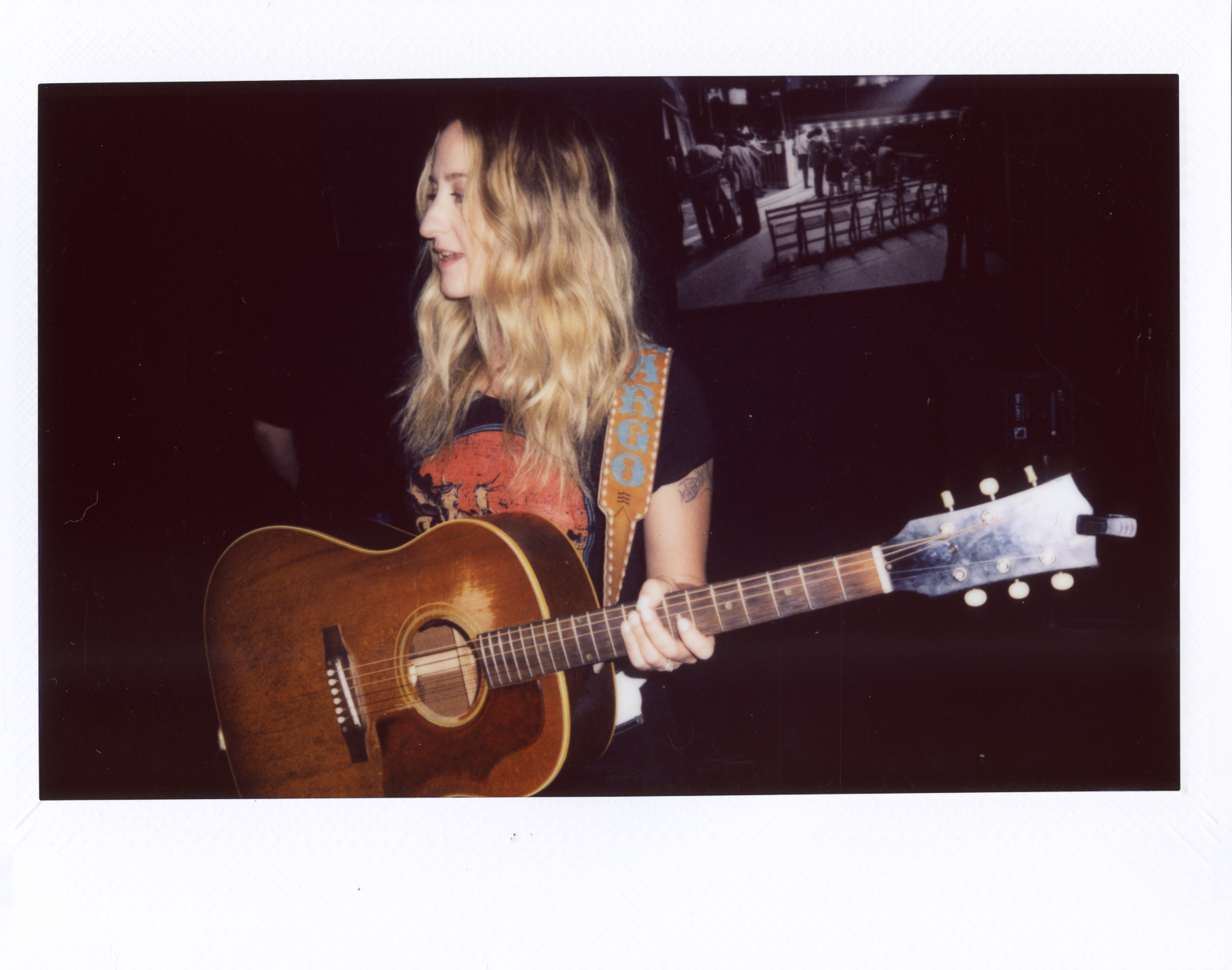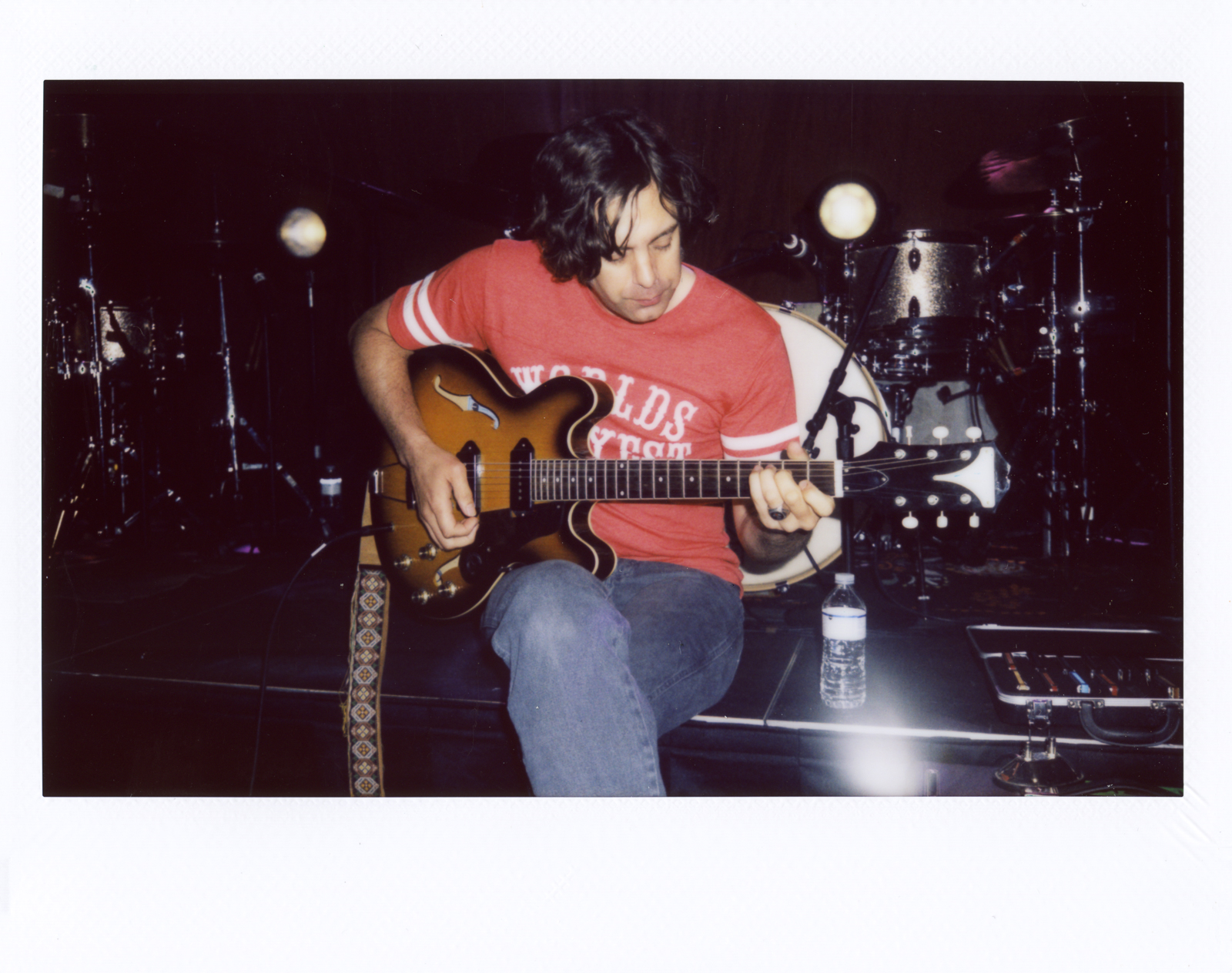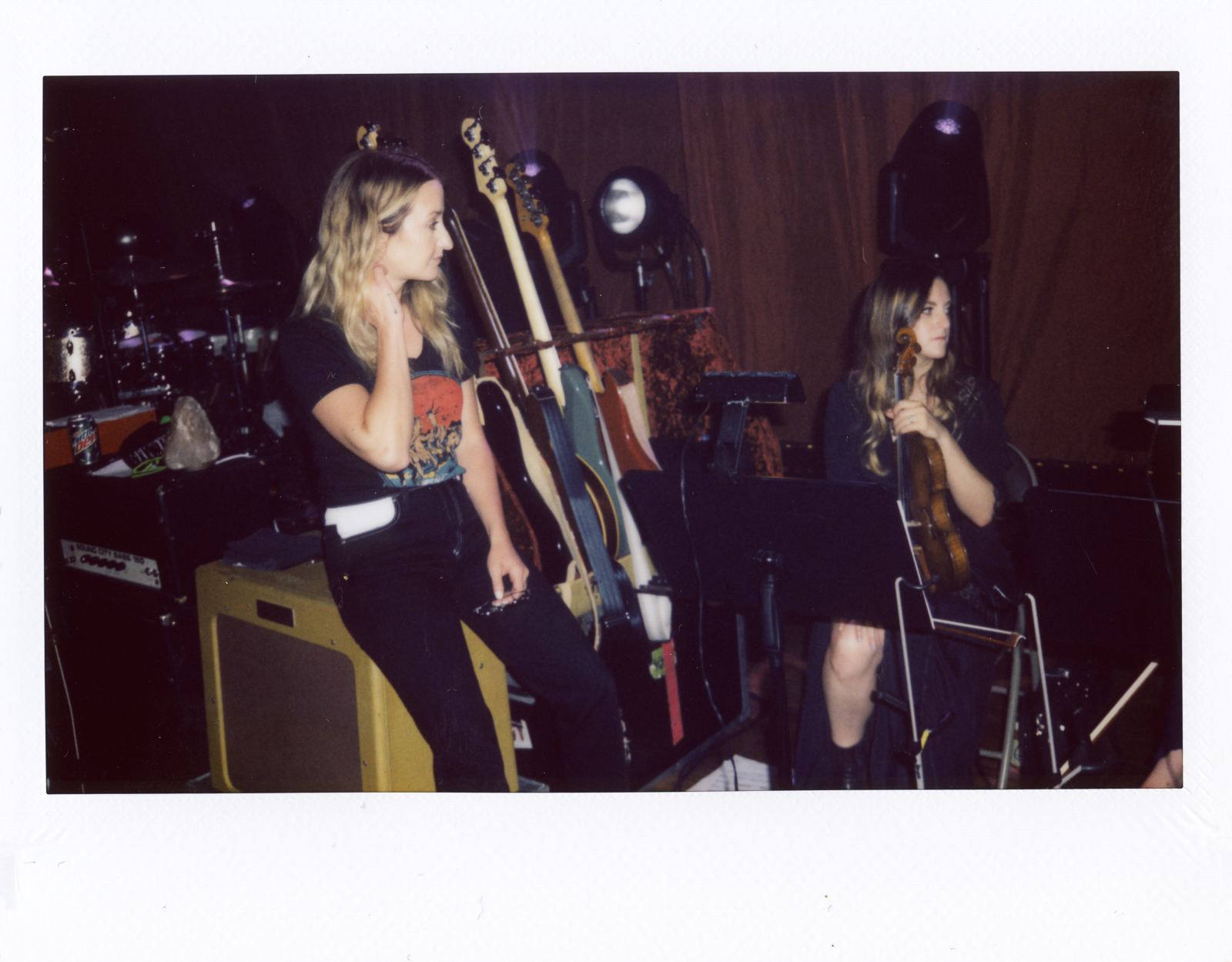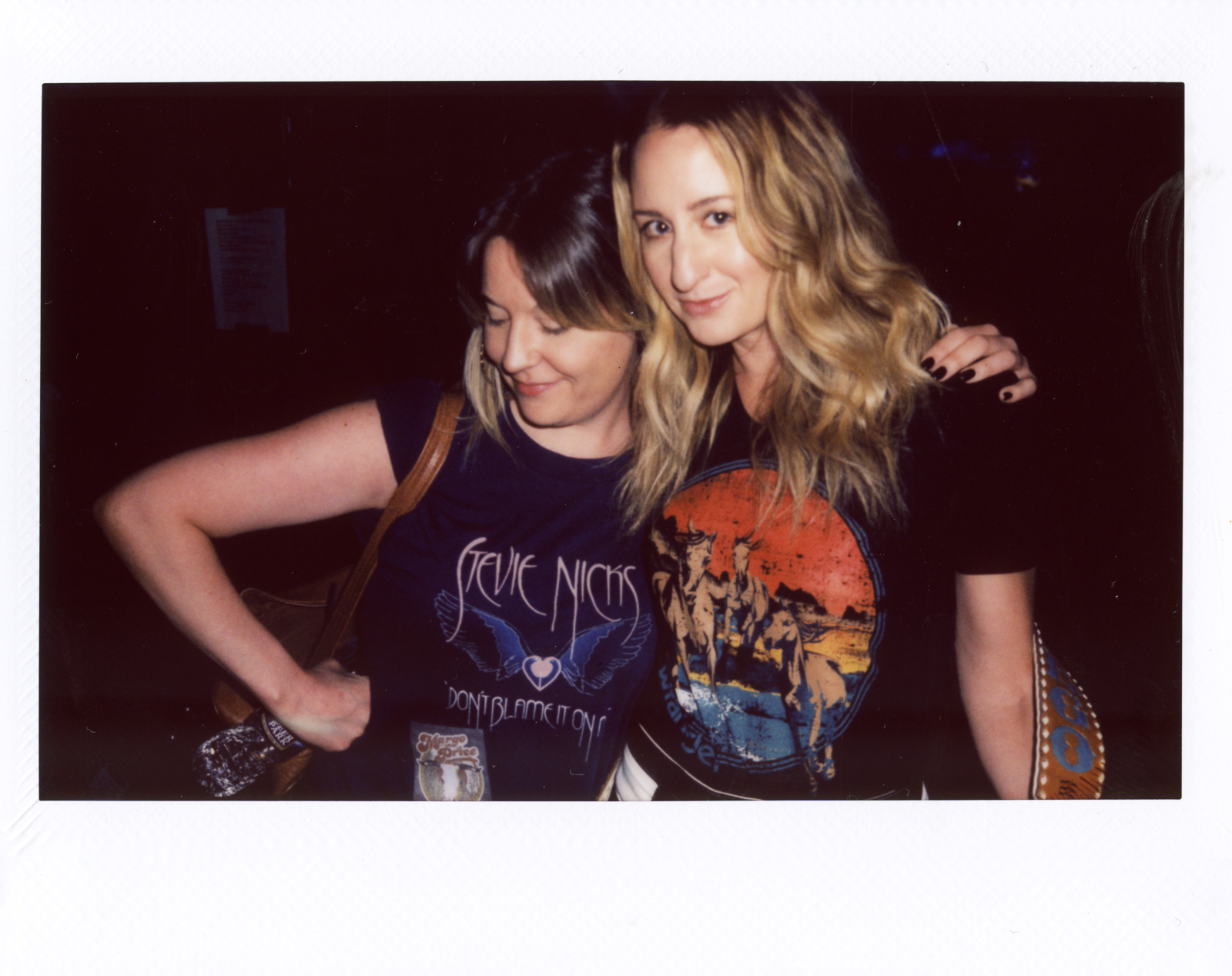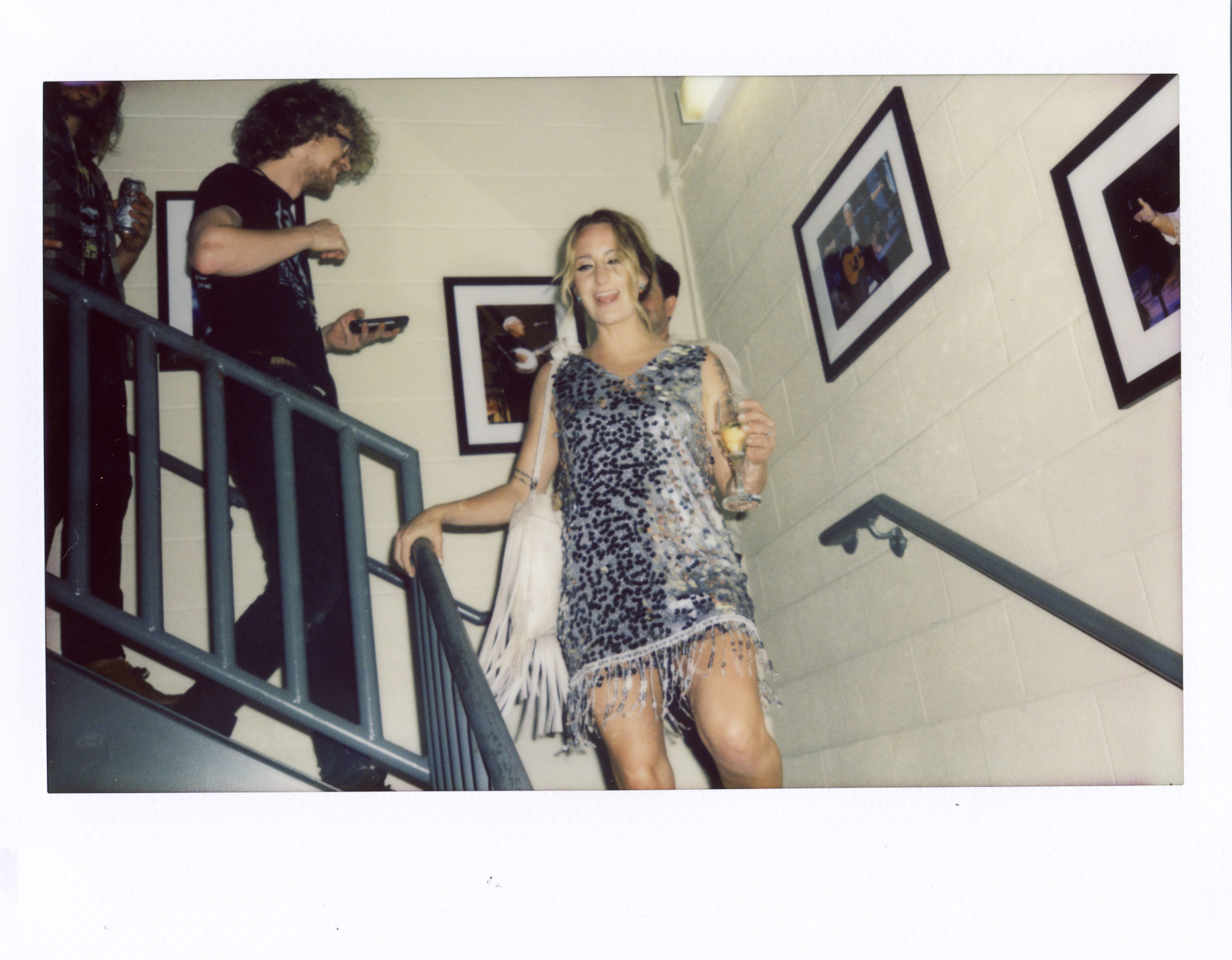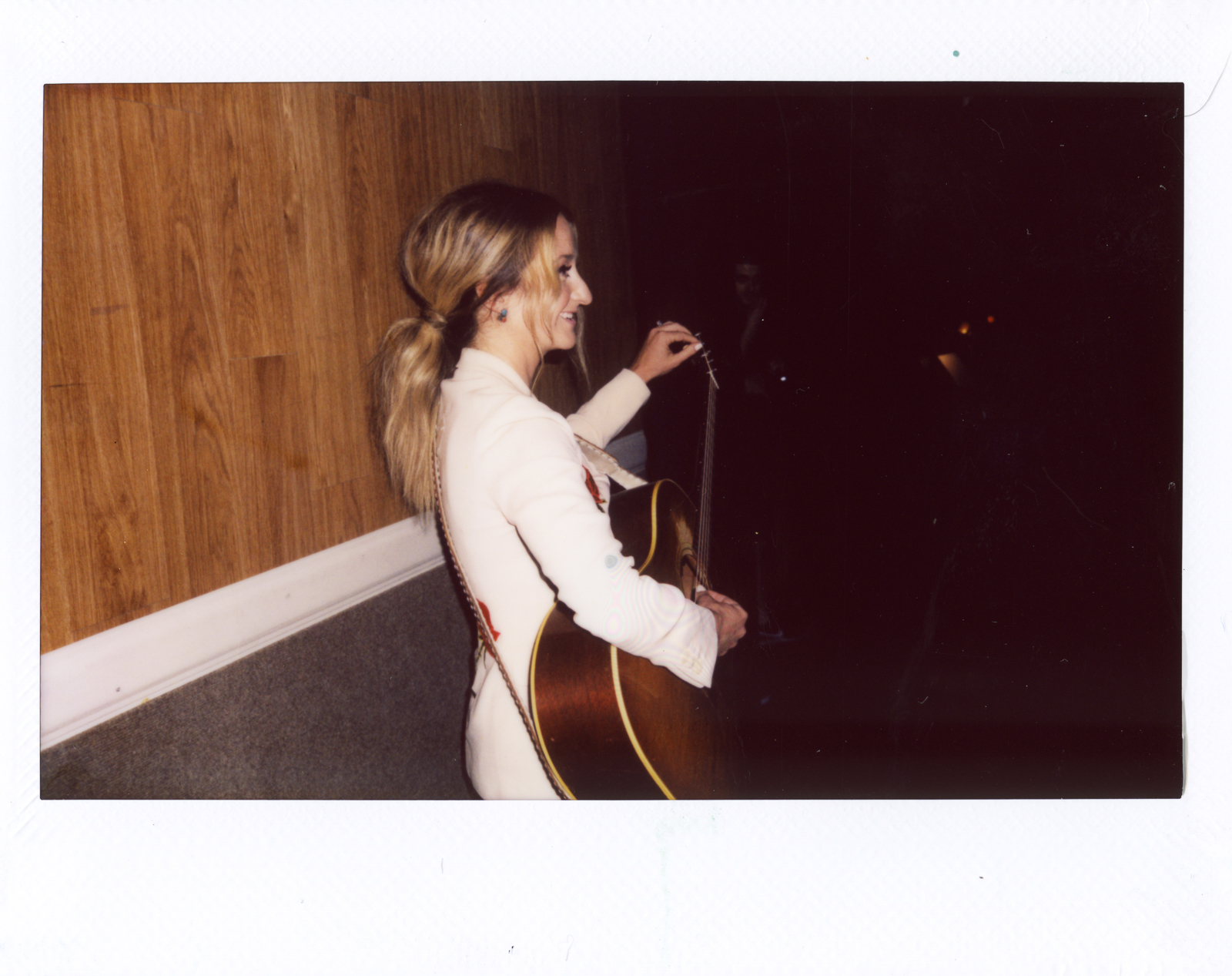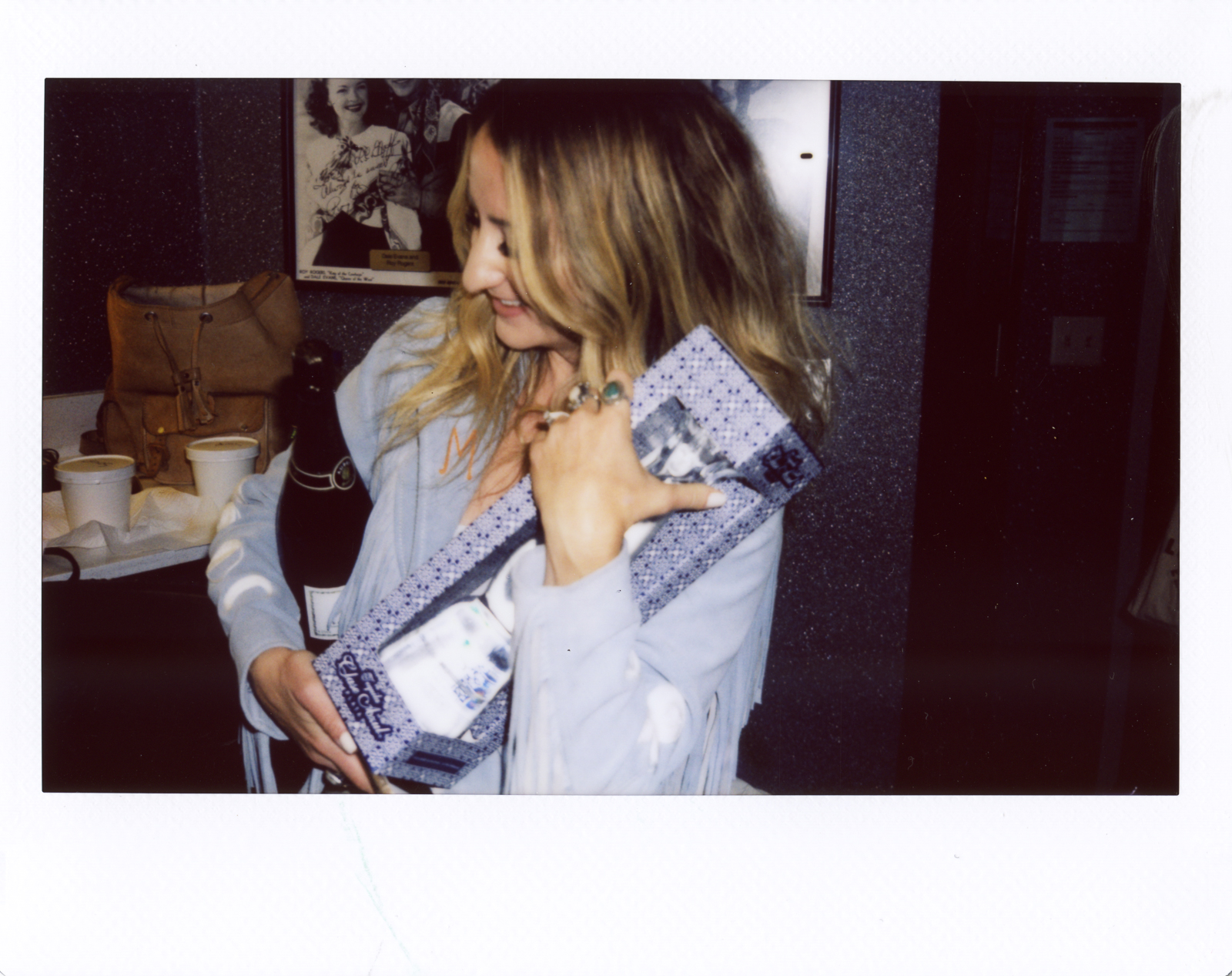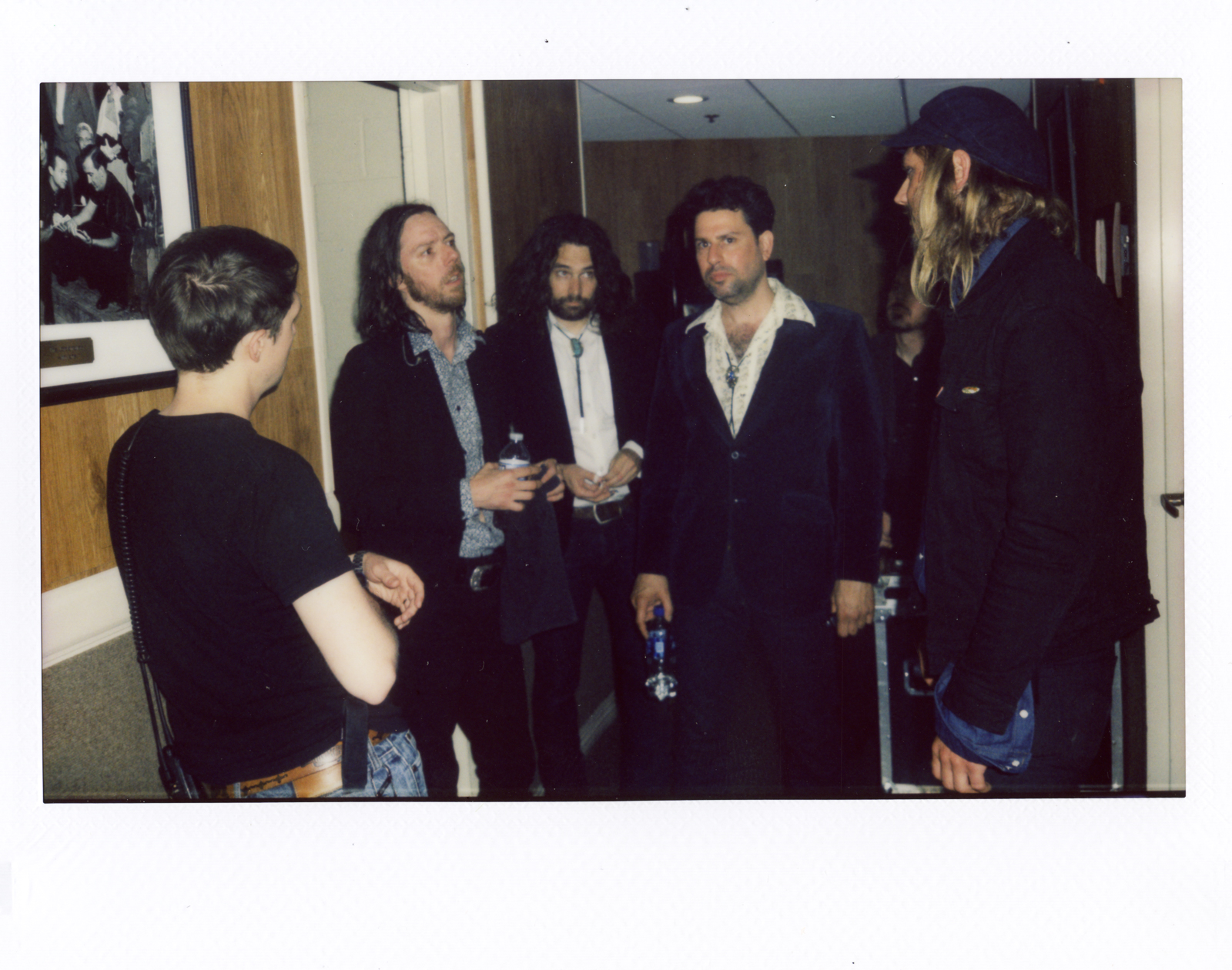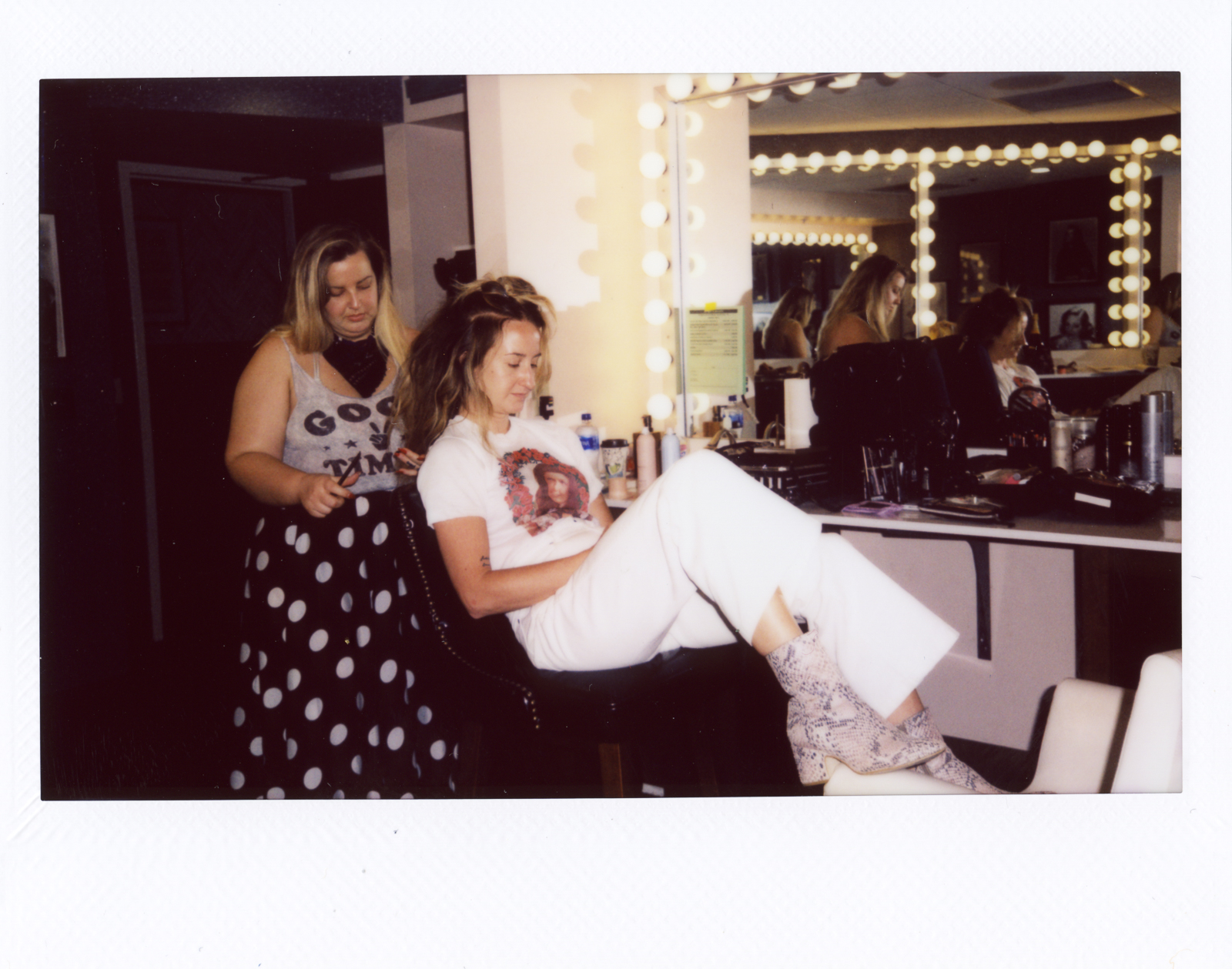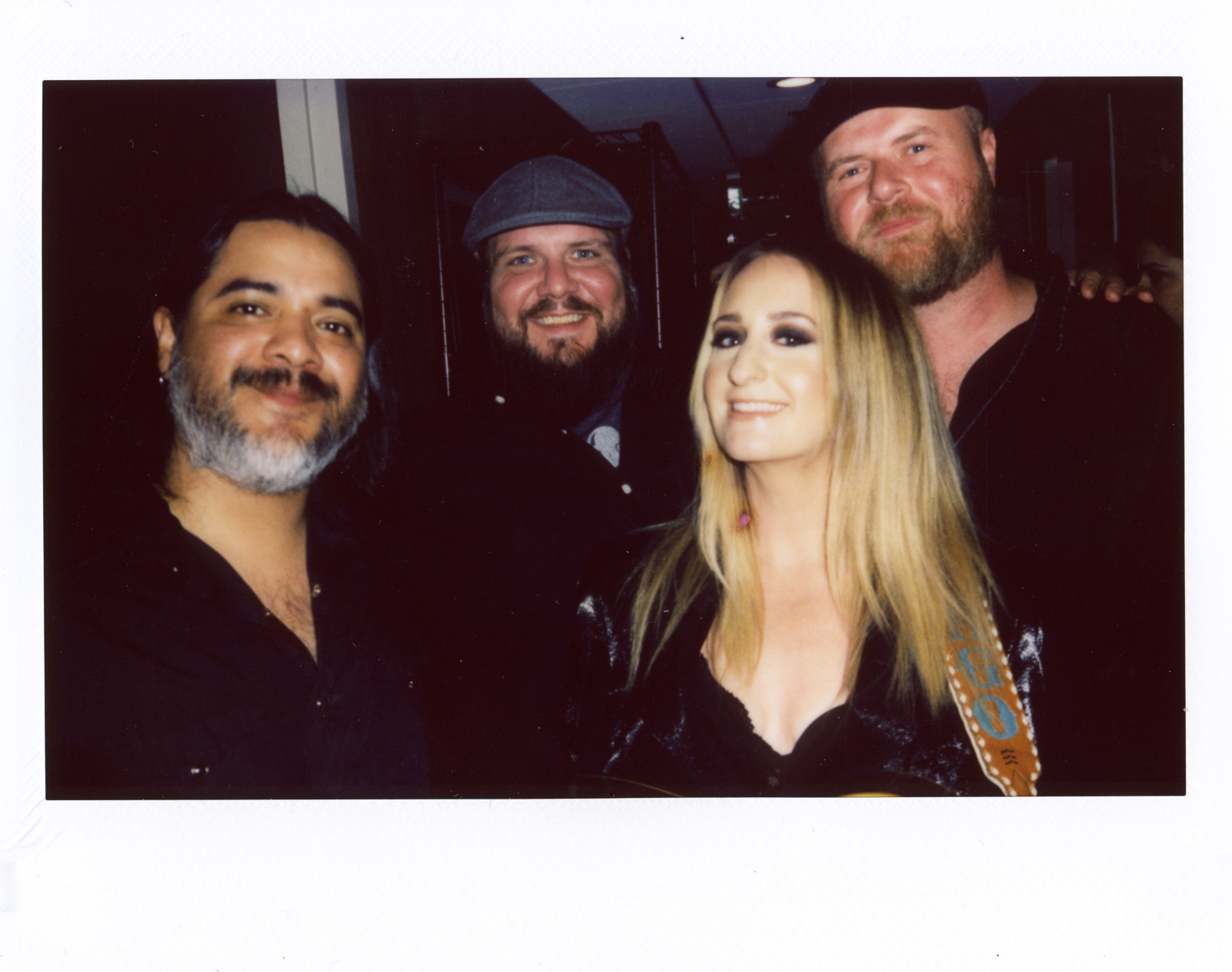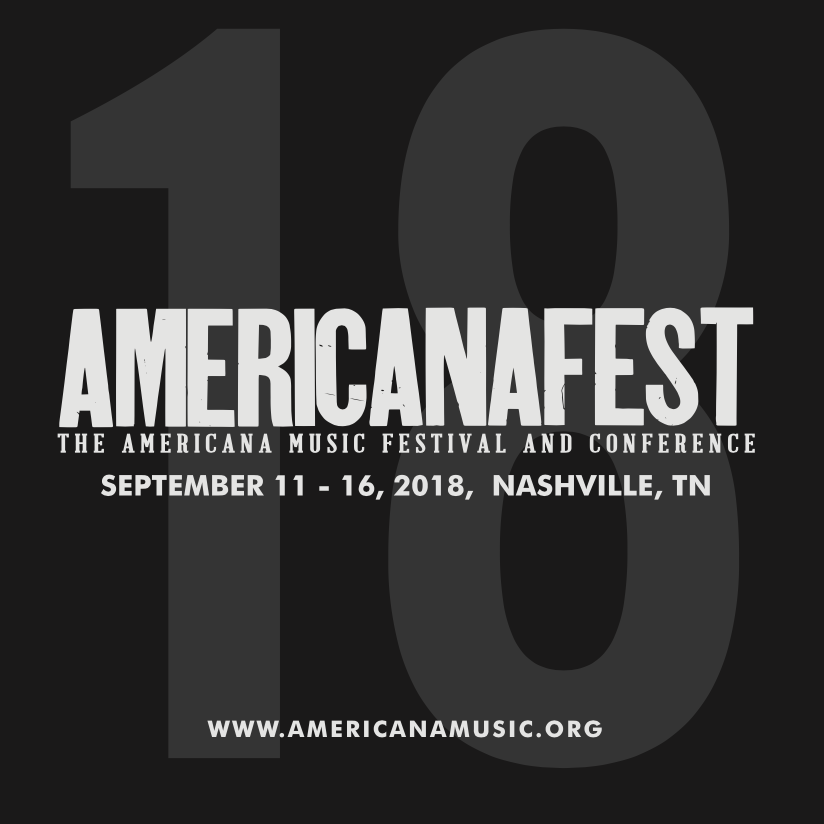A Conversation with Altamesa
by Al Giesler
We had a chance to catch up with Evan Charles & Sean Faires of Altamesa before their single release party at the Mohawk last week in Austin. “Shadow On Your Heart” is the next installment in ‘From The Idol Frontier’ a collection of singles, narratives, and artifacts to be released in non sequential form.
Luck: Singles -- it’s kinda old school right, that’s how music used to get out?
Sean Faires: There's two things happening here...the reality that we’re an unsigned band, you know, we’re an independent band so we don’t have a limitless budget to put out a record and then put the push behind it that we would like to. We don't have money to pay for publicity and things like that and you gotta, kinda, beat the streets a little more. So we decided we’d try to build our audience a little...give ‘em a little of the music that we’ve been putting together, bit by bit, and give them a little more stuff to sink their teeth into.
Luck: ‘Cause it’s all building up to something...
SF: Yeah, it’s building up to the release of the full record.
Luck: And that's slotted for the fall?
Evan Charles: Yeah...(for) fall or, at latest, February of next year.
SF: It’s hard to kinda scratch all your creative itches at once. [The project] is kind of an opportunity for us to show off some of the other stuff that we do and things like that.
EC: There’s a chance to show that the record can be taken as more of a heavily thematic piece than otherwise might be apparent; to create a cohesive narrative strand of a character throughout the songs. Not that it was necessarily crafted as a concept record or anything, but they were all written for the most part in the same batch of time...
SF: It’s pretty highly stylized to invoke a certain feeling… a territory...
EC: The songs...music should explore different facets of the human personality, and we have a lot of different moods on the record. So it gives a chance to show the different elements of a person's psyche with the written word elements.
Luck: It’s really an art piece though. You’ve got the music, the words...
SF: Yeah, that's kinda what we want to present with this record. We are trying to do a little more than start a new band and churn out our first record and move on. We want to show that we are heavily invested in it.
The band started releasing the singles in February, and have recently been hitting iconic Austin venues; which also fits into the larger narrative of ‘Idol Frontier’:
Luck: Tonight you are playing a gig at the Mohawk to celebrate the release of the latest single “Shadow On Your Heart”, and the first 100 people in the door are going home with the single?
EC: If they take it...I hope so.
SF: If we can convince them to take it out of the suitcase.
Luck: Well, that should be pretty easy I would think.
SF: We tried to choose the [venues] appropriately to be a good setting for the single. Our first one was “The New West” and so we did it at the biggest, best honky tonk we could find! [The White Horse]
EC: We did “Perfect Path” at [Hotel] Vegas. I guess we’ve gone down a few windy paths after Vegas.
SF: [For] “Minor Vice,”...the color scheme I chose, everything, was kinda inspired by the Continental Club. it was the place where people congregated back in the day and did some … stuff, so yeah it kinda fit our motiff for that song and this place. When I’m thinking about the Mohawk I always think of the times I had at the Mohawk, like being young and seeing concerts and this particular song is more about a romance, more of an upbeat whimsical thing which fit this room a bit better… It’s such a great place to see a show especially when they built the second tier. It got really fun to play on the outside stage, feels like the people are right there.
Luck: So each single has a number, an order but…
EC: We released them 1, 4, 3 and now we are on number 2.
Luck: Is that to throw us all off?
SF: More of a nod to the collector geeks, to get the entire narrative, you won't be able to watch episodically, you've got to go one and then expect two right after… you got to go to all 6 of the shows to collect them all. That was kinda part of the incentive to give them a little value, if somebody they were so interested and I’m not sure if everyone is or who all wants to go seek out all 6 but for those people that might be, that's kinda why we did it that way.
Luck: As a collector I appreciate all that.
SF: Yeah that's good we were hoping there be a few people out there.
Luck: Sean, you are doing the covers for each single. Will you also do the full length cover or is that still TBD?
SF: To be determined, likely depending on... part of the reason harkens back to what I was saying earlier about being an independent band and doing our own art saves us a buck.
Luck: You recorded this series of songs over at Skeleton Farm Studio in Leander?
EC: Our friend Jonas Wilson who’s kinda sort of got his hands in a lot of different things… he's the type of guy that can play any instrument. He's in a band called The Midnight Stroll with Aaron Behrens (Ghostland Observatory). Aaron has a sidehouse on his property that's really tall room, great acoustics, Jonas was in between studios so he just moved all his gear over to Aaron's place. Jonas is kinda one of our true believer, type of friends. You know just no matter how he can, really wants to help us out and help us make music happen, he's really the whole reason the band even started.
Luck: I saw an interview, and it sounds like he told ya to get going, in simple terms.
EC:Basically, yeah. It was just was a really comfortable situation cause not a lot of bands record up there. It’s operating as a studio, but it’s also just a friends situation & not to mention it’s close enough... I prefer recording in the country, less distracting, quieter, more room to think.
Luck: When the band first came together, you two (Sean and Evan) took a trip to west Texas -
SF: Well we went all the way to California actually, we went on a few trips over a couple years and it was definitely that territory & that region that was fresh in our head when all this stuff was getting written.
EC:Yeah I definitely wrote a bulk of the songs after the first time I went to west Texas. it was to go play as a member of Nic Armstrong & The Thieves in 2012, we went to go play Trans Pecos Fest at El Cosmico (Marfa, TX) and that was just like a truly magical experience especially for my first time out there. I came back from that and kinda just like without really thinking about it...had the feels sink in, the feel of that place sink in. Driving to Marfa, driving to Monterey and back, just kinda soaked in that atmosphere.
Luck: Kinda that long lonely road?
SF: Yeah for sure.
EC: Absolutely
SF: You see a lot of different walks of life out there, especially people that are out there kinda hiding you know? And you happen to find em. We got some of those experience and things like that… It's a good bed or good foundation for creation of the band I think.
EC:For the concept if there is an overarching concept - the big open spots of land
Luck: What music is inspiring you currently?
SF: I’m the first to say I’m the worst at listening to new music. I’m stuck and still so satisfied and hungry for what I call the source. So most of my seeking is backwards.
EC: As far what’s influenced the sound of the band, our own points of reference of what we try to sound like are more backward, I kinda try and see what we're doing, between Sean and my guitar parts, we try to keep it really fluid and interlocking and loose, allowing for happy accidents to happen. So in that way it’s almost like a Crazy Horse type of deal but I also - at least for the initial first couple years of the band, and maybe this changes as time goes by but - I try to write tightly structured songs, just so that… you don't wanna feel like you’re wasting anyone's time, so I try to compose it as tightly as possible and play it loose.
I’ve been really getting into Daniel Romano and over SXSW I ended up having her dinner with Caroline Rose who just put out her record. After we ended up eating in my friends backyard with her and I got her record it’s pretty amazing. Beyond that keep an ear to stuff thats coming out like if Nikki Lane album comes out i'm gonna try to check out the songs. We have a guy in town named Ramsay Midwood who is fucking awesome -
Luck: You've done some gigs with him in the past?
EC: Yeah we played with him once and we've done a few more at Sam Town Point, his bar. He's kinda like the JJ Cale of our town, no one else really does that or does it as well. Beyond that people in town like Booher is amazing , (Otis) Taylor is amazing , Jesse Ebaugh who we did one with with. He's like the new Burrito Brothers. I find most of the new music that I get into is like local people and trying to hear what everyone is doing so I can kinda see what we are having to stack up against really.
SF:See what's relevant.
Luck: Yeah pound for pound in this town…
EC: It’s a high bar.
SF: Yeah and that's another thing too when I find myself watching new bands. I find myself going out to watching the guitar player dude that I know is in the band, see my guy kill it tonight… I'm guilty of spending too much attention watching the musicians around town, looking at the trees a lot and missing the forest a ton.
EC: There's a lot to sink your teeth into.
SF: It's so saturated, you walk into a building... there’s music there.
Luck: How do you feel about the artist community?
EC: Amazing, so supportive. As I was saying, on this single we are putting out tonight we did and going back to reference points, a huge reference point was the Jeff Lynne produced Tom Petty stuff. This one, we kinda tried to shoot for that airy 12 string vibe that they did on “Free Falling” and “Won't Back Down” and the way they accomplished that - have you seen that Tom Petty doc?
Luck: That 4 hour and change doc? Oh yeah!
EC: It’s like Jeff Lynne, George Harrison, Petty, and Roy Orbison all with 12 string guitars around one mike strumming the same chord you know? We tried to do our own version of that with two 12 string and a 6 string. The only reason I was able to do that is I was able to call up Jonathan Terrell and Andy Bianculli who’s in Star parks and those guys graciously lent me their 12 string guitar so we could chase this idea. Just one instance of musical community being really supportive and interlocking. I think everyone does what they can to be a solid foundation for each other.
Luck: How was your Luck experience? You’ve been out a few times now.
SF:It's probably the single event I look forward to the most every year. A large part of that is because of all the artists that are there and we’re all pretty much connected. Most of the people that have played Luck, when the new people get on to Luck they’ve come off the hot tips of musicians. It's all great to get everyone together and Luck is set up so everyone gets to mingle whether it be artist to artist or with the people, it's just a good scene.
Luck: You have called your music as “cosmic american and rock and roll.” We’ve been talking about Americana at Luck and what that really means in terms of genre.
SF:I think the kinda story that were telling is maybe more of the genre than the music were playing. I think that probably lends us more to being placed in that Amerciana realm. What I feel is we are a rock band and right now we are writing stories about the west. We take some of the sounds of the west and put them into rock n roll music. For the most part we are closer to a psych rock band than an Americana band.
Luck: I think if you put labels or limitations that curbs your…
SF:It really does and especially with the word Americana, I just have my own experience from growing up playing it, really kind of pigeon holes you... That's the cool thing with Luck, especially the last couple of years the lineups have definitely not been solely Americana.
The term alone is fitting because Americana as its own separate from music term implies story of America. Anything relative to the folklore, history of America. In that sense we can fit into it.
Like most conversations these days, we eventually drifted into politics .
EC: It’s hard to take your eye of politics isn’t it?
SF: The things that are inspiring the most is just looking at the day to day heroes and I think you can't really say anything good comes out of terrible things but the situations we are dealing with now are raising awareness at least. I mean... shit, I get a little teary eyed over pro football players taking knees and things like that. It's a big thing to put yourself out there and risk your career, your neck, its right especially today.
That's the other inspiring, one good thing from the internet I gleen is, stumbling upon somebody doing the righteous work out there, using their creativity to drive positive changes.
But eventually we got back to the heart of things.
SF:There's just so much content out there that if you’re not willing to kinda play the social media game as it’s played today… we don’t mind taking pictures of ourselves but were not running around... We try to do our best to be present all the time but it's hard to cut through all the content even when you are doing that all the time. So what really wanted to do with this presentation is just do the most hard work that we could. The most genuine artists’ art and presentation that we could and hope that the effort sticks through.
EC: And just hope that its perceived as a unique approach. You know, because there's so much that you want to give anyone seeing it any little reason to turn their head, perk their ear up, well this is, their doing something different, even if its not musically different.
SF: At the end, if you know it doesnt turn into this larger mass of success thing, at least we have this stuff we created, you know we put our whole effort into something we’re gonna be pleased with.
Luck: I think the hard work brings the audience.
Let's hope so.
Luck: If not and you've enjoyed your ride…that’s really the goal. Still, it’s pretty courageous and big risk to do what you love, sometimes it pays off in spades and sometimes its a slow return but it’s your choice right?
EC: I’ve never seen it as a choice honestly, I’ve had the luxury to be able to still live and be able to do music, sometimes by a very thin margin but still be able to do it. But I’ve never gotten to the point where I was able to choose whether or not. It’s always been plotting ahead in whatever fashion was doable at the time.
Never giving it a second thought, I don’t want to claim the term courageous you know, I don’t see it that way. It's a way of operating in the world in a way that makes you feel that you are continually trying to discover yourself and shine new light on yourself and those around you, the world around you... that has made it not a choice, that has made it like a mandate or something.
SF: Yeah if my girlfriend ask me well are you gonna stop playing music, what's your plan b and I’m like plan b would be to paint pictures (chuckles) but I still got to learn how to draw.
Altamesa will circle back to The White Horse for the 5th single release on August 10th. Head to their Bandcampto download the 4 previous singles.
